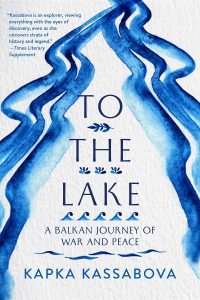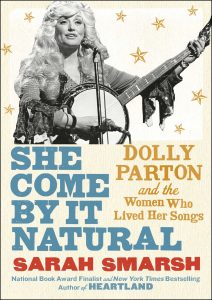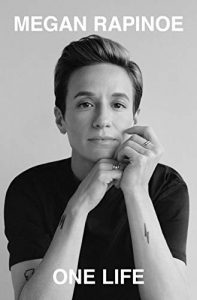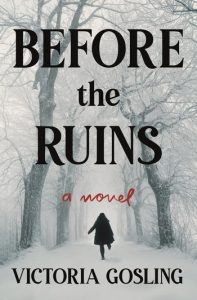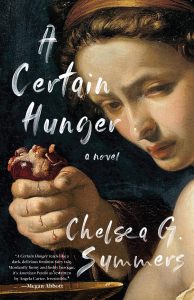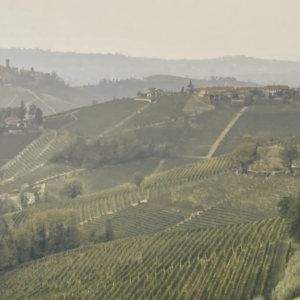
Lit Hub's Most Anticipated Books
of 2020, Part 2
A Reading List for Our Cursed Timeline
Though it may feel like 2020 has been going on for a year already, or five years, or a century, I regret to inform you that we’re only halfway through it. On the other hand: we’re halfway through 2020. In fact, by the time this goes live, we will be slightly more than halfway through 2020. Which is something, I suppose.
It feels pretty bleak to be alive right now, but hopefully, in December, we’ll be able to look back on this year as one in which we ousted a vile, corrupt leader, took personal responsibility and worked together to beat back contagion in our communities, and made meaningful progress toward racial and social justice. It’s also possible, of course, that we won’t. But either way, some good books are going to come out in the next six months. Here are the ones we’re most excited about.
JULY
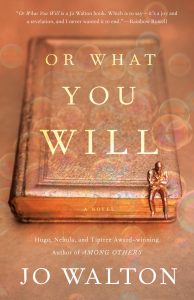 Jo Walton, Or What You Will
Jo Walton, Or What You Will
Tor Books, July 7
I love Jo Walton; her Among Others is brilliantly referential, rewards re-reading, and won both the Hugo and the Nebula, naturally—a book that engages with the genre even as it becomes a part of it. Her latest, Or What You Will, sounds like it’s cut out of the same cloth: it centers on a character who . . . is a character in the books of award-winning author Sylvia Harrison. Just the kind of meta-narrative playfulness I love to get into. –Emily Temple, Managing Editor
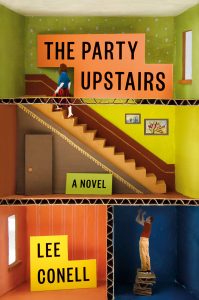
Lee Conell, The Party Upstairs
Penguin Press, July 7
As previously described: Lee Conell’s debut novel, The Party Upstairs, is singularly suited to the specific times we’re in. The novel takes place solely in the course of a single day in a luxury apartment building, told from the point of view of the live-in super’s daughter, a 24-year-old who has a foot in both worlds: her father’s world, as well as the more-privileged world she wishes to inhabit. The novel’s portrayal of class, the real and lasting effects that wealth, or lack thereof, can have on your mentality and outlook, is unparalleled. Most impressively done was the depiction of performative wokeness that pervades our current society, and manages to get to the crux of why that culture can often feel wrong: namely, when privilege can blind those to the power structures they inhabit, as those same privileged people simultaneously “call out” those who don’t have the privilege of such a voice. It has, as my coworker Molly Odintz said, “Marxist, Big Little Lie vibes”, a compliment I don’t think one can top. –Julia Hass, Editorial Fellow

Virginie Despentes, tr. Frank Wynne, Vernon Subutex 2
FSG, July 7
Move over André Gide, the gritty cult read of modern France is back in its second installment. The eponymous hero of Despentes’ trilogy is still on the lam, sleeping rough in the Parc des Buttes-Chamont. When the first volume ended, the former record shop proprietor had plummeted a long way down—losing most of his friends, love itself, everything but a precious tape of the final video interview rocker Alex Bleach gave, one in which sinister film producer Laurent Dopalet might be implicated.
The possession of said tape powered Despentes’ madcap plot in book one. Here the movement eddies to a different mood altogether—something briefly like, oddly, contentment. Homeless, Vernon ironically winds up finding a place of his own: each day friends and park denizens bring him food and other forms of sustenance. A small community of sorts emerges in the park, not out of misery, but of having survived it.
What do the aged out and drugged out do when a society built on endless greed and consumption wrecks itself? What do they stand for? Lacking any hold on pretense, Vernon and his crew have nowhere to hide from such questions. As a hilarious assortment of mercenary searchers bears down on Vernon and his tape, he emerges as a new kind of messiah of the dispossessed, who know from experience what it means to have no one to stand up for you. –John Freeman, Executive Editor
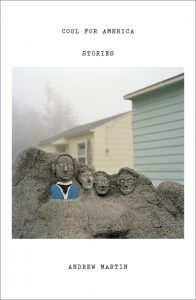
Andrew Martin, Cool for America
FSG, July 7
As previously described: If you read Martin’s excellent debut novel Early Work, you will recognize the themes (millennial ennui, underemployment, oveducation, a tendency to think too hard and do too little) of his winning first collection—and perhaps some characters (Leslie, Kenny, even Kiki and Scruggs). Mostly published in The Paris Review, these stories are perceptive slices-of-anxiety that will be uncomfortably, ecstatically recognizable to anyone who has ever considered themselves an intellectual—especially if it was sometime in the 2010s. –Emily Temple, Managing Editor
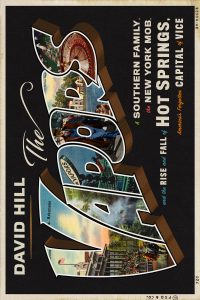
David Hill, The Vapors
FSG, July 7
Before Vegas was even a twinkle in Bugsy Siegel’s eye, Hot Springs, Arkansas, spent the roaring 20s playing host to the biggest gangsters in the nation, with prominent casinos that put equal emphasis on entertainment and gambling. David Hill takes us into the metamorphosis of a sleepy resort town into a vacation hub guaranteed to play host to stage darlings, their mafioso fans, and the fur drenched extramarital companions of both. Of course, the party’s bound to come to an end some time, but in what a spectacular fashion! –Molly Odintz, CrimeReads Senior Editor

Benjamin Nugent, Fraternity
FSG, July 7
A short story collection that orbits a fraternity doesn’t sound that appealing, as a setup, but Nugent is a great writer, and the stories within are very funny, if darkly so, nostalgic, and sharply satirical. Also, if you knew any boys in college, or maybe even were one, some of it will be very uncomfortable for you. In a good way. –Emily Temple, Managing Editor
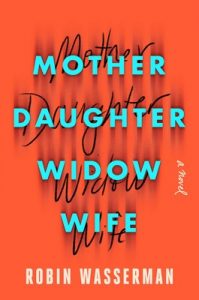
Robin Wasserman, Mother Daughter Widow Wife
Scribner, July 7
In this novel, Robin Wasserman takes the major themes of selfhood and existence, and maps them onto an entirely new premise. An amnesiac woman, Wendy Doe, is found on a bus, with no memory of how she got there, who she is, or where she was headed. She is entered into a research study, where two scientists, Dr. Strauss and Lizzie Epstein, project their own wills and desires upon her. Meanwhile, her daughter Alice is still out there, wondering where her mother went, and why. By the end we are fully caught up in the propulsive story of Doe as she tries to form a self again, and left wondering, what is it that makes us who we are, and does it have anything to do with us at all? –Julia Hass, Lit Hub Editorial Fellow

David Berry, On Nostalgia
Coach House Books, July 7
As previously described: What does it mean to live in a world where nostalgia is so omnipresent it might as well be tactile? That’s the conundrum David Berry explores in his book On Nostalgia, which touches upon everything from the political and historical uses of nostalgia—from ancient Rome to contemporary America—to the way narratives like Ready Player One and The Last Jedi utilize it in disparate ways. Berry’s subject is a wide-ranging one, but he pulls off the impressive feat of covering plenty of ground in a concise and compelling manner. –Tobias Carroll, Lit Hub contributor

Charlie Kaufman, Antkind
Random House, July 7
As previously described: Screenwriter Charlie Kaufman’s Antkind has been referred to as Kafkaesque, and that’s not wrong, but the only thing it can really be compared to is Kaufman’s own cinematic oeuvre, which includes the mind-warping films Eternal Sunshine of the Spotless Mind, Adaptation, Being John Malkovich. B. Rosenberger Rosenberg is a failed film critic (and a failure at a host of side jobs that exist to support his failing career of film criticism) who believes that his career, and the whole cinematic world, will be completely rocked when he introduces a rediscovered film made by an unknown genius. He is the only one who has seen this film, and so when the film is destroyed, leaving him only with a single frame, he embarks on an insane journey to recreate it, somehow. The best part about Antkind is its take on the so-called permanence of cinema, and how he turns film into the most ephemeral art form of all: theater. –Olivia Rutigliano, CrimeReads Staff Writer

Karen Solie, The Caiplie Caves: Poems
FSG, July 7
As previously described: The competing instincts, in terrible times, of retreating from the world, or entering it ever more deeply, animate Karen Solie’s exquisite fifth collection. On one plane, these new poems tumble back to the 7th century, when an Irish missionary, Ethernan, withdrew to caves near Fife to contemplate war, the wreck of civilization, and the mendacity and greed of humankind. He quickly finds, in Solie’s rewriting here, a kind of vanity in this exclusion. “I can’t be sure now there ever was humility in it,” she writes in his voice, “burning the self as though it were a city / believing the past might be destroyed / and remade.”
On another plane, The Caiplie Caves chronicles the poet’s own meandering in and out of seclusion, togetherness, misanthropy, rage. At times she sounds like a naturalist, gently clutching at flowers in appreciation; at other times like every curmudgeon who ever turned up in Scotland to kick a rock or two. “I like it at sea level,” Solie writes in “An Enthusiast,” “It’s the right amount of exposition for me.” This is companionable work for how it finds a rough, wet music in the see-saw of sensibility between expansiveness and rejection. The inner metronome much older and more reliable if it can be heard. –John Freeman, Executive Editor
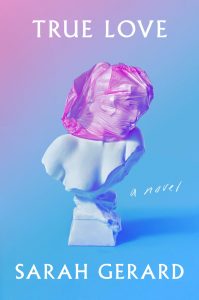
Sarah Gerard, True Love
Harper Books, July 7
From the author of Binary Star and Sunshine State comes a novel about a twenty-something aspiring writer with an eating disorder, a pill addiction, and a rogue’s gallery of ex-boyfriends, who hustles back and forth from the poisoned Floridian suburbs of her youth, to the chaotic squalor of transient life in NYC, all in search of love and creative fulfilment. Sunshine State—Gerard’s 2017 memoir/essay collection hybrid—was a magnificent psycho-geographical exploration of America’s oddest state, and the author’s relationship to it, so I’m excited to check this one out. –Dan Sheehan, Book Marks Editor
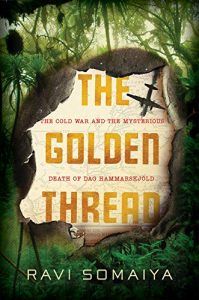
Ravi Somaiya, The Golden Thread: The Cold War and the Mysterious Death of Dag Hammerskjold
Twelve, July 7
Ravi Soumaiya’s summing up of the investigation into the mysterious death of United Nations general secretary Dag Hammerskjold is as epic and sweeping as one would expect. The Americans, the Brits, the Rhodesians, and the Soviets (and a slippery and terrifying white supremacist organization out of South Africa) all want their hands on the Republic of Congo’s vast mineral wealth, and only the new nation and the UN forces stand between freedom and exploitation. This book is both fascinating and horrifying, both a thrilling tale and a cry for justice; the case has continued to develop to this day. –Molly Odintz, CrimeReads Senior Editor
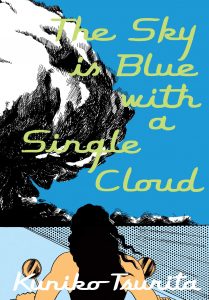
Kuniko Tsurita tr. Ryan Holmberg, The Sky Is Blue with a Single Cloud
Drawn & Quarterly, July 7
As previously described: Until the 1980s, alternative manga was largely run by and created by men. Kuniko Tsurita was a vital exception and was the first woman to regularly draw comics for the legendary alt-manga magazine Garo. Throughout her life, Tsurita surrounded herself with material from writers like Dostoevsky, Pushkin, Beckett, Sartre, and Nietzsche. Tsurita unnervingly did away with traditional narrative structure and coherence and anchored her comics with feverish sensory experience. Her comics are miniature existential nightmares that twist through the mind after reading. –Nate McNamara, Lit Hub contributor

Paul Tremblay, Survivor Song
William Morrow, July 7
Here’s a good one for the pandemic—in Paul Tremblay’s latest novel, which has a very Tremblay take on the zombie/vampire mashup genre, a rabies-like virus has overrun Massachusetts. Bites turn regular people into ferocious attackers of their friends and family in less than an hour, and the hospital system, although in possession of an effective vaccine, is inundated by the diseased. When a pregnant woman is bitten, it’s up to her resourceful friend to get her to the hospital and vaccinated before the new virus can devour both her and her unborn child. Harrowing and fast-paced, this one is guaranteed to keep you up late reading (although we wouldn’t advise reading it at night). –Molly Odintz, CrimeReads Senior Editor
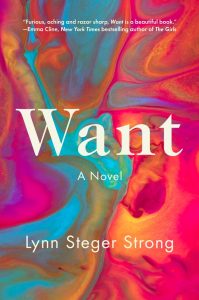
Lynn Steger Strong, Want
Henry Holt, July 7
As previously described: Want is the kind of book that is so engrossing and hard to put down, it feels less like reading a book and more like inhaling a universe, one that you were waiting for and didn’t know it. Our protagonist, Elizabeth, and her unnamed husband, are in the midst of declaring bankruptcy, even though Elizabeth came from wealth, even though she has a PhD from an Ivy League, even though they never saw this coming. As Elizabeth grapples to feel in control of her life, she gets back in touch with her ex-best friend, Sasha. Want is funny and irreverent and is laced with that peculiar mix of desire and apathy that comes from wanting more while simultaneously believing you’ll never get it. It’s a story of friendship, of trying to pinpoint the moment it all went wrong, of career, and searching for what is right. A story of marriage, sacrifice, and longing. It’s the story of want: that is, the unending desire to live a good, true life. –Julia Hass, Editorial Fellow
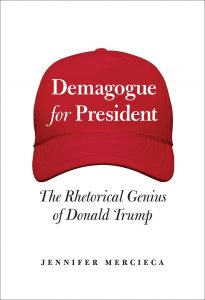
Jennifer Mercieca, Demagogue for President: The Rhetorical Genius of Donald Trump
Texas A&M University Press, July 7
As previously described: “Warning! This book is going to make you angry,” Texas A&M professor Jennifer Mercieca begins her upcoming Demagogue For President: The Rhetorical Genius of Donald Trump. Maybe. But I don’t think it could make me any angrier than our chief demagogue himself—especially all the lies and insults that spew, like you-know-what, out of all his orifices. So I’m thankful to Mercieca—a much published historian of American political rhetoric—to explain how the hell Donald J. Trump is able to say opposite things on a daily basis and yet still retain the support of 40 percent of American voters. Rather than compounding our irritation with Trump, however, Mercieca’s new book will make you angry with an American electorate that, as President Demagogue himself boasts, would still vote for him even if he stood in the middle of Fifth Avenue and openly shot somebody. –Andrew Keen, host of Lit Hub Radio’s Keen On
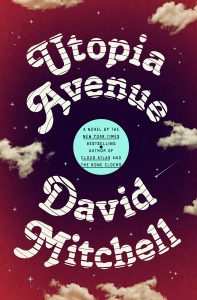
David Mitchell, Utopia Avenue
Random House, July 14
The word I kept thinking of as I read Mitchell’s latest was . . . chummy. That is, it’s big and pleasant and entertaining, and you won’t be sorry if you hang out with it for a little while. It concerns four young musicians in 1960s London who come together in search of rock stardom—one of them, Mitchell fans will be interested to know, is named Jasper de Zoet (and his story is the most interesting of the group). And that’s not this novel’s only connection to the Mitchell-verse. While some of the elements are a little ham-handed (Mitchell has apparently invented the literary version of a fade-out), and I could have done with a few fewer cameos from faux-wisdom-dropping dead rock stars, Utopia Avenue is certainly a pleasurable way to while away the hours. –Emily Temple, Managing Editor

S. A. Cosby, Blacktop Wasteland
Flatiron, July 14
As previously described: Blacktop Wasteland concerns a stand-up family guy named Beauregard, aka Bug, who used to drive getaway for robberies, and gets sucked back into the life when bills come due that he can’t pay any other way. Featuring a compelling protagonist and awesome car chase sequences, plus a heist gone south which is always fun to read about, this rural noir set in Virginia with a black protagonist who kicks a lot of ass is the highlight of the summer. Bonus points: it also doubles as a helpful read for quitting smoking! –Molly Odintz, CrimeReads Senior Editor
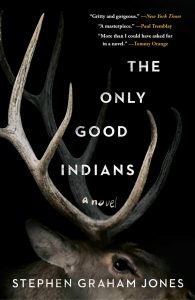
Stephen Graham Jones, The Only Good Indians
Gallery/Saga Press, July 14
Something is killing a group of friends, and that something wants revenge. In Stephen Graham Jones’ ghostly thriller, four buddies and their families are brought together by the news that a ghostly entity is picking them off. Could it be the spirit of an elk they once killed that they had no right to hunt? Jones grounds his work both in the noir tradition and in Native American spiritual lore, for a hard-boiled take on nature’s well-deserved revenge. –Molly Odintz, CrimeReads Senior Editor
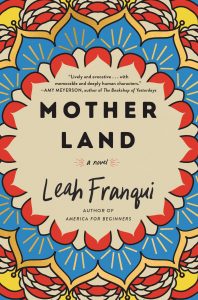
Leah Franqui, Mother Land
William Morrow, July 14
Mother Land is the riveting story of a woman from New York agreeing to move to Mumbai with her Indian-born husband; once there, the inevitable culture shock takes place, exacerbated by the fact of her husband’s mother announcing she will be living with the couple. The husband leaves to travel for a long period of time, leaving the two women together to understand their relationships to each other and to the man that binds them together. This is a stunning tale of mothers and place and ownership and the concept of fitting in, and most importantly, about that elusive thing, going home. –Julia Hass, Lit Hub Editorial Fellow

Camila Russo, The Infinite Machine: How an Army of Crypto-hackers is building the Next Internet with Ethereum
Harper Business, July 14
As previously described: I’m particularly excited by Camila Russo’s new book, The Infinite Machine: How an Army of Crypto-hackers is building the Next Internet with Ethereum, which tells the crazy story of the blockchain revolution from the perspective of the Ethereum cryptocurrency. Don’t let the techno-verbosity of her title mislead you, however. Russo—the ex-Bloomberg tech journalist who describes herself on Twitter as “Chieftess at the Defiant”—has written a fast-paced, Michael Lewis-style history of crypto-currency which help us sort out our Bitcoins from our Ethereums. So if you want a sneak preview of the new new thing, read The Infinite Machine. It’s kind of like the old internet. Only madder and scarier. –Andrew Keen, host of Lit Hub Radio’s Keen On
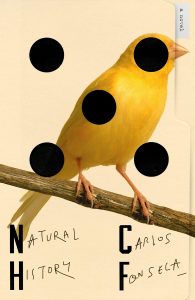
Carlos Fonseca, tr. Megan McDowell, Natural History
FSG, July 14
As previously described: For readers interested in climate change and the natural world—but who prefer books a little less on the nose—Carlo Fonseca’s Natural History (translated by Megan McDowell) offers a layered and at times wonderfully beguiling story about art, history, and mystery that hops generations. Animal lovers will delight at the protagonist’s obsession with creaturely furtiveness and wild animals’ natural ability to self-camouflage. And fans of ambitious structure-benders like Italo Calvino will appreciate the novel’s planet-and decade-spanning mystery that connects 1970s New York to the jungles of Latin America. As the protagonist, a curator at a natural history museum, pieces the clues together, he discovers links between art, science, and religion that change forever how he sees the world. –Amy Brady, Lit Hub contributor
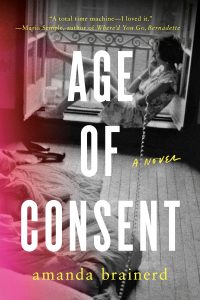
Amanda Brainerd, Age of Consent
Viking, July 14
What a perfect summer book about all the things I love reading about: namely, young women coming to terms with themselves, their friendships, and their desire. And set in the 80s no less! I love being placed so firmly in this time of New York: Bowie, and grittiness, and a kind of freedom that is rarely allotted to teenagers these days, but was once taken for granted. Of course, there is another side to the coin of this kind of freedom, which could take the shape of abuse and predation, in a time when these things were rarely considered. But even if things have changed since the 80s, much still remains the same: the reliance on deep friendships, the joy of a city at night, and the deep urge for experience, and more life. –Julia Hass, Lit Hub Editorial Fellow
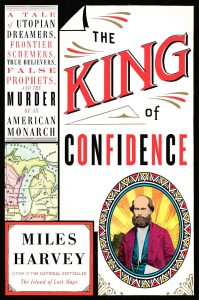
Miles Harvey, The King of Confidence: A Tale of Utopian Dreamers, Frontier Schemers, True Believers, False Prophets, and the Murder of an American Monarch
Little, Brown, July 14
Immediately after finishing this one, I texted a friend who, like me, had spent years living in housing cooperatives and had an interest in utopian communities, squeeing about my new favorite ne’er-do-well of history: James Strang, a con artist for the centuries. Strang failed at many an antebellum profession before finding his calling; after a plan to lure Mormons to Michigan to pay inflated land prices was threatened by the sudden demise of Joseph Smith, James Strang had a sudden revelation that he was Smith’s intended successor.
Enjoy this wild tale of Strang’s breakaway Mormon cult, who bought into the land deal but eventually ended up a little more skeptical of their new lord and master, who even insisted on being crowned king. Among his henchman was a failed Shakespearean actor whose ability to deliver tragic monologues was often interfered with by his alcoholism, sexually predatory behavior, terrible selections in plays, and inconceivably dirty shirts. When the community moved to a remote island in Lake Michigan, they immediately began to enthusiastically engage in piracy, bringing the attention of the US government down on them but providing many opportunities for their silver-tongued leader to talk his way out of seemingly inescapable predicaments.
One of the many sins of Strang’s utopian settlement? His second wife (after Strang’s long-delayed embrace of polygamy) got used to wearing pants while disguised as his male secretary on a lecture tour. She then brought the appetite for bloomers into the community long before they took the nation by storm, and family loyalty to the king was measured by, among other things, whether or not the women wore pants. Those defiant of his regime wore skirts in rebellion. I’ll stop here but please read this book. It’s the most fun you’ll ever have reading about the 1840s. –Molly Odintz, CrimeReads Senior Editor
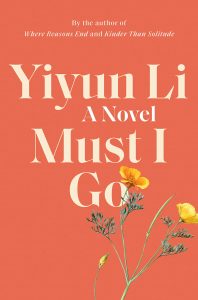
Yiyun Li, Must I Go
Random House, July 21
If I told you that you could read the diary of a man you once had an affair with, what would you do with it? Lilia (mother, grandmother, widower) has an idea. She annotates it! Must I Go is a novel about a woman marking her side of the story. If you’ve read Yiyun Li before (perhaps her seminal Dear Friend, from My Life I Write to You in Your Life or her PEN Award-winning Where Reasons End), you know that she always manages to reach right into the tender heart of things. –Katie Yee, Book Marks Associate Editor
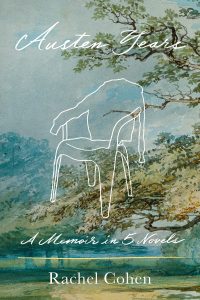
Rachel Cohen, Austen Years
FSG, July 21
This style of memoir is my favorite: with a premise and backdrop of an entirely different subject, in this case, the entire oeuvre of Jane Austen, and yet is actually a moving and introspective look at the internal state of the author. This memoir tracks Rachel Cohen as she reckons with both her father’s death and prepares for the birth of her first child, turning to Austen as an anchor and an answer. In parts criticism, literary history, memoir, and philosophical questioning, Austen Years tackles the subjects of writing, reading, grief, and ourselves with lyrical mastery. –Julia Hass, Lit Hub Editorial Fellow
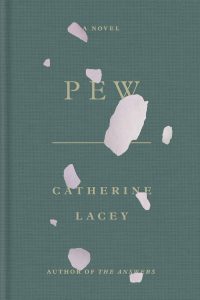
Catherine Lacey, Pew
FSG, July 21
As previously described: Catherine Lacey’s creepy, clever novel Pew is the closest thing (I’ve read) to an actual Twilight Zone episode. About a completely ambiguous, identity-less, homeless outsider who arrives in a small Southern town (found sleeping inside a church), and who seems to maintain this strange black-hole of existence despite that many people feel drawn to it (to the point of confessing things to it), this book is about the canvasses onto which we paint our own xenophobia, who we trust, and why we shun. It is a terrifying, heartbreaking take of morality, and judgement. –Olivia Rutigliano, CrimeReads Staff Writer

Ann and Jeff VanderMeer, The Big Book of Modern Fantasy
Vintage, July 21
I grew up on fantasy and science fiction, and though my tastes have changed as an adult, I still get a delicious thrill when I encounter a portal or dragon or a magic chalice. It’s a pretty fair bet I’ll find some in this volume, which collects ninety-one modern fantasy stories collected from twenty-two different countries, including Russia, Argentina, Nigeria, Columbia, Pakistan, Turkey, Finland, Sweden, China, the Philippines, and the Czech Republic, and including five that are translated into English for the first time here. It’s like discovering a chest full of riches, with no dragon in sight. –Emily Temple, Managing Editor
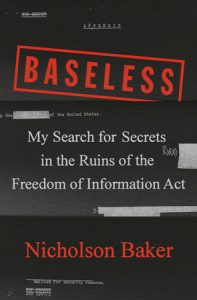
Nicholson Baker, Baseless: My Search for Secrets in the Ruins of the Freedom of Information Act
Penguin Press, July 21
As previously described: From the very beginning of his writing life, in the brief, brilliant novel, The Mezzanine, Nicholson Baker has approached the process of describing the present as an ever-expanding archive of moments. Thoughts and movements so tiny they can expand infinitely all the way down to the quark. In time, Baker moved from such imaginary archives to real ones, such as the stacks of old newspapers he described rescuing in Double Fold, which won a NBCC award 20 years ago, to Human Smoke, which dug into the margins of recorded history and found a burgeoning pacifist movement right up until and through World War II.
Now Baker has gone to the archive tool on everyone’s mind in our bizarro times, the Freedom of Information Act. Here’s Baker’s account of its history and his own attempt to use it to find out if the US tried to use chemical weapons in the Korean War. He files a Freedom of Information Act request, and begins to wait: and wait. And wait some more. Gradually, through determination and keen archival work, Baker begins to piece together the story of Project Baseless, an air force wide program “an Air Force-wide combat capability in biological and chemical warfare at the earliest possible date.” What he learns is shocking, strange, and not at all surprising the US government would want to keep such information out of the hands of citizens. This book ought to make for important context as a blizzard of FOIA requests bear down on the administration of the current occupant of 1600 Pennsylvania Avenue. –John Freeman, Lit Hub Executive Editor
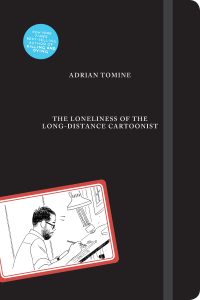
Adrian Tomine, The Loneliness of the Long-Distance Cartoonist
Drawn & Quarterly, July 21
As previously described: So many memoirs are about overcoming adversity. We cringe, cry, and clap for the author, knowing eventually something will resolve. Tomine, who is perhaps the John Cheever of comics (in the way they both excavate the human heart), shows how our lives are less tidy than that common memoir arc.
Since he was four, Tomine was singularly focused: he wanted to be a famous cartoonist. On its surface, this memoir recounts the details of a life: Tomine gets married, has a child, draws covers for the New Yorker, advances his career. He is famous. But the book’s deeper story is one of vulnerability, humiliation, self-doubt, and the loneliness that fame or success doesn’t exempt. Tomine draws himself in almost every frame, in his established understated tones, yet each section is a story of not being seen. His desire to be accepted into and seen (not just looked at) in the world he loves and where he is beloved, is palpable in its desolation, which inconceivably and wonderfully, moves from profound sadness into laughter with the advance of each frame. We are not laughing at him, as the people in the book do. We are laughing with him and at the travesty of how so many people he encountered could be so obtuse. –Kerri Arsenault, Lit Hub contributing editor
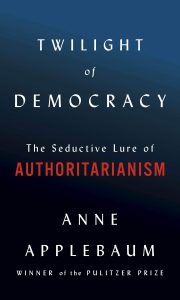
Anne Applebaum, The Twilight of Democracy: The Seductive Allure of Authoritarianism
Doubleday, July 21
As previously described: Anne Applebaum’s bracing new book kicks off at a glamorous millennial eve party at a country estate in rural Poland. The author and her husband, a Polish politician, had recently renovated a crumbling stately home which they’d bought “for the price of its bricks”; friends had arrowed in from across the political spectrum and all over Europe to toast the new millennium. Wine was drunk, vats of beet stew eaten, cheap and dangerous Chinese fireworks set off. A new era was to begin.
And now, 20 years later, the idea of a center, of any kind of collective shared territory, has retreated so far in Poland that many people who’d packed into Applebaum’s country house for this memorable occasion wouldn’t even speak to each other, she writes now. Most would cross the street to avoid one another. Today Poland has one of the most divided societies in all of Europe.
What happened? Part memoir, part recent political history, Twilight of Democracy tells that zigzagging story, asking big, often unanswerable questions along the way of governments and friends. Why, for instance, if so many of the architects of Europe’s rightward shift are not underemployed or marginalized or uneducated, as the stereotypes go—as to what turns people bitter and vengeful—then what is it in for them beside power: were they always secretly xenophobic?
Applebaum doesn’t have an answer to this, but she has done a brilliant job of illuminating some of the darkening forces across the globe. As a journalist, columnist, and Pulitzer Prize-winning historian of the Soviet Union, she has spent time living and working in Europe since 1988, and is extremely knowledgeable on continental European politics, describing trends with a center-right stance: pro-democracy, pro-market. If what you are looking for in a book on the decline of democracy is a stinging rebuke of capitalism’s excess, this is not it.
If Twilight of Democracy loses something in its unwillingness to question who the previous order had served, it ripples still with fascinating insight on how a state escalates out of rhetoric and into autocracy without the so-called ruptures that are thought, say, to have enabled Hitler’s renovated nostalgia or Milosevic’s lethal historical fantasies. Applebaum’s writing on Poland here is among the most interesting, because it is something she has previously avoided. As a political “wife,” and well-known columnist and historian, her goal was to stay out of Polish politics.
But eventually Polish politics wouldn’t stay out of her life. Twilight of Democracy describes the creeping and insidious ways trolling and bullying rears its head in Poland, among journalists, and how fear replaced any kind of debate in public space. In a country that had made an industry out of its Holocaust memorials, too, how did a national debate of Holocaust denying get kicked off?
It began, Applebaum writes, with some familiar technocratic events: the gradual hollowing out of the federal government. Month by month, even when they’d lost power, the Law and Justice party determinedly replaced experts with cronies and flunkies, they packed courts. “There was very little pretense about any of this,” Applebaum writes. “The point of all of these changes was not to make government run better. The point was to make the government more partisan, the courts more pliable, more beholden to the party.”
Elected with a slim margin, the party didn’t have a mandate to change government: so they excelled at identifying existential enemies. Just as Britain locked itself up out of the EU, and the popular vote loser Trump shut America’s borders to Muslims and Mexicans, who came marching in caravans to “invade.” Weaving back and forth across Europe and America, Applebaum makes a strong case that what we are witnessing is yes, not popular, but it might indeed still be the end of democracy in our time. This is not a book leavened with hope, or the brisk notion that there is yet time. Indeed, the picture it paints of how power is used, how it tends to be used when weaknesses in the checks are discovered, is not a rosy one, nor should it be. –John Freeman, Lit Hub Executive Editor

Robert J. Mrazek, The Indomitable Florence Finch: Untold Story of a War Widow Turned Resistance Fighter and Savior of American POWs
Hachette Books, July 21
As previously described: There are some people you are meant to discover. Florence Finch is one of those people for me. From the first page of this biography I was transfixed by her story and by the way it was being told. Mrazek’s writing is intelligent. The historical aspects of the Japanese Forces in the Philippines during WWII are presented without sentiment allowing the narrative to flow at an appropriate pace.
But to call this a biography mitigates the importance of Major Carl Englehart, boss, friend, and champion of Finch’s heroic role in the resistance against the Japanese for which she received a Presidential Medal of Freedom. His story, woven with hers, in alternating short chapters, makes for a complete picture of Finch’s courage and selflessness. It is a beautiful story of love between friends and of two people who together and apart saved the lives of many POWs. I attribute my crying at the finish to both the joy of discovery and the certainty that it was a book written from the heart. –Lucy Kogler, Lit Hub contributor
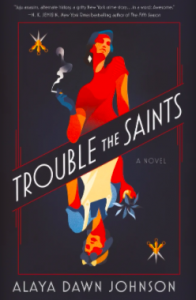
Alaya Dawn Johnson, Trouble the Saints
Tor Books, July 21
As previously described: I am psyched for Alaya Dawn Johnson’s Trouble the Saints, out from Tor on July 21, which has both an intricate crime plot and one of the original magical systems I’ve ever come across in fiction. Set in an alternate version of the 1940s, Trouble the Saints follows a mid-career assassin getting tired of using her special knife skills to kill for a brutal hitman. She and the bartender at the gangster’s cabaret hidey-hole share a forbidden love as she tries to make up her mind about leaving her violent boss and making her own way in the world. Meanwhile, someone’s been killing those with special talents—people like her. The magic of Trouble the Saints is reserved for those who have society stacked against them, and their talents can be curse and blessing. As glamorous, smoke-filled, and noir as anyone could hope for, Trouble the Saints is the perfect lush summer fantasy read, with an ending that will stay with you long after you turn the last page. –Molly Odintz, CrimeReads Senior Editor
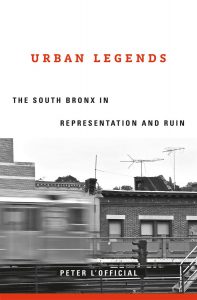
Peter L’Official, Urban Legends
Harvard University Press, July 21
As previously described: The Bronx is burning and crumbling; the Bronx is the Boogie Down—the distance between these popular representations and life in the Bronx is wide enough to swallow the borough whole. Yet for far too many, the Bronx sits in the imagination among ruins, descending into decay or ready to emerge into renewal. When not overlooked, it’s held up as a symbol of urban neglect, a caricature for our consumption. Thankfully, along comes the intellectually capacious son of the Bronx, Peter L’Official, to peer into the archives, survey the streets, and dip into varied fascinating crevices to present a vibrant cultural history of the South Bronx. In Urban Legends: The South Bronx in Representation and Ruin, L’Official summons photography, film, fiction, and music to bear witness to the multifaceted creativity and vitality of the South Bronx, and deftly reveals a place overflowing with with myths, dreams, images, and visions that make us see it afresh. This delightfully innovative narrative is the perceptive look that the Bronx and New York City has long deserved. –Garnette Cadogan, Lit Hub contributing editor
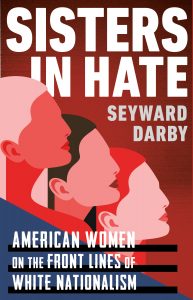
Seyward Darby, Sisters In Hate: American Women on the Front Lines of White Nationalism
Little Brown and Co., July 21
As previously described: No, I don’t want to hang out in the minds of white nationalists, either, but Darby does that on the reader’s behalf, promising a book that probes the architecture of “the war embedded in the landscape” of the US. American identity, and the oft-overlooked role of women therein. “Women are the hate movement’s dulcet voices and its standard bearers,” Darby writes, and that has long been so, and it’s time to talk about it. “The least Americans can ask of one another is to have frank conversations about whiteness, no matter how difficult or uncomfortable,” writes Darby. Indeed. –Lauren Markham, Lit Hub contributor

Stan Parish, Love and Theft
Doubleday, July 21
Parish has crafted one of the strongest contributions in recent memory to a genre much-beloved here at CrimeReads: the heist novel. In Parish’s version of this classic story, a successful thief just off a big Vegas score meets an impressive single mother at a party in Princeton. The two quickly escalate their relationship and end up in Tulum for a weekend, when the thief’s past begins to catch up with him and he realizes he needs to orchestrate the legendary “one last score” in order to get out of the game for good. Parish manages to weave together genuinely compelling arcs of crime and complicated human entanglements. –Dwyer Murphy, CrimeReads Managing Editor
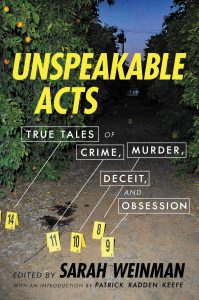
Sarah Weinman, Patrick Radden Keefe, Unspeakable Acts: True Tales of Crime, Murder, Deceit, and Obsession
Ecco, July 28
This anthology of contemporary true-crime writing, edited by the incomparable Sarah Weinman, contains thirteen short pieces of high-caliber journalism that shook the culture and helped inspire today’s true-crime phenomenon. With pieces by Michelle Dean, Pamela Colloff, and with an introduction by Patrick Radden Keefe, this book will be sure to keep you riveted. –Olivia Rutigliano, CrimeReads Staff Writer
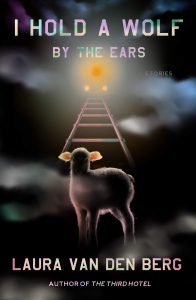
Laura van den Berg, I Hold a Wolf by the Ears
FSG, July 28
As previously described: If you enjoyed Laura van den Berg’s The Third Hotel, I have good news for you: her new short story collection, I Hold a Wolf by the Ears, occupies a very similar world. The stories here echo with the same uncanny call. The characters (mostly women, some unravelling) find themselves in delightfully specific, bizarre circumstances: one woman is so anxious her husband secretly drugs her with seltzer, one woman is confronted by her ex-sister-in-law after an earthquake, one woman impersonates the dead wives of her customers. Something that makes this collection so addicting is the way Laura van den Berg throws her characters into moments of vulnerability, moments where we expect connection, but the hooks don’t catch. (It feels very fitting for quarantined times.) It’s unsettling. It’s bewitching. The first story begins: “I want to tell you about the night I got hit by a train and died. The thing is—it never happened.” Laura van den Berg is the master at this kind of intimacy, luring you in and letting the floor drop beneath you. –Katie Yee, Book Marks Associate Editor
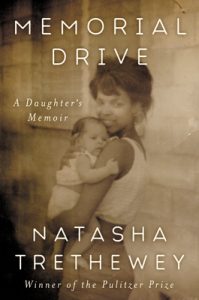
Natasha Trethewey, Memorial Drive: A Daughter’s Memoir
Ecco, July 28
As previously described: In the mid 1980s, when she was a teenager, the poet Natasha Trethewey’s ex-step-father came to a football game where she was cheerleading. Her reaction, she writes in her astonishing, gripping memoir was two-fold: fear, for her ex step-father had been abusive for years, and even the sight of him could turn her skin cold. And sadness. She waved, a small wave, mouthed a hello, and later, after he was arrested, he told the police he did not kill Natasha that night because she had been nice to him.
Memorial Drive is an anguishing story, it tells the true crime tale of how Trethewey’s ex step-father had gone and shot and killed her mother, and the catastrophic damage this had on Trethewey’s family. It also tells of Trethewey’s relationship with her mother, the woman who raised her and in essence—it sometimes felt—gave her life so her daughter could have her own, something Trethewey has wrestled with mightily and gracefully with in her award winning poetry.
Finally, Memorial Drive is the story of how a mind can be made by love and rupture in equal measure, and how—growing up—poetry, composing herself, became the way for Trethewey to restore the former by building a bridge over the latter. As a biracial girl in the south from the mid 1960s onward, Trethewey learned early how much even the very sight of her challenged people around her. This is work of immense dignity and sorrow, a psalm to a past forever gone, and a vivid glimpse of a writer tangling with her demons in plain sight in hopes others like her might feel less alone with theirs. –John Freeman, Lit Hub Executive Editor
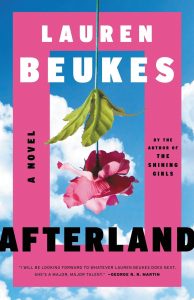
Lauren Beukes, Afterland
Mulholland, July 28
As previously described: It’s a little hard to read this novel right now—but like everything Beukes writes, it’s worth it. When the novel opens, an “unprecedented global pandemic” (see what I mean) has killed all but 1% of the world’s male population. Cole’s twelve-year-old son Miles is one of the mysteriously immune—which means that everyone wants a piece of him, and so they hit the road in disguise as mother and daughter, Cole’s sister Billie, who has her own schemes, hot on their heels. I can say for sure that Beukes nails the speed of the unraveling, and the strangeness of living in a suddenly altered world. I hope none of the rest of it comes true. –Emily Temple, Managing Editor

Jax Miller, Hell in the Heartland: Murder, Meth and the Case of Two Missing Girls
Berkley, July 28
As previously described: Jax Miller first got on my radar for Freedom’s Child, a furious and breakneck journey across an apocalyptic American landscape, based on Miller’s own experiences with hitchhiking and addiction in her 20s, and her new true crime book is just as beautiful and devastating. Hell in the Heartland digs deep into a case involving a trailer fire, two missing best friends, and an interconnected web of drug trafficking, murder, and cops looking the other way. –Molly Odintz, CrimeReads Senior Editor

Rebecca Giggs, Fathoms
Simon & Schsuter, July 28
As previously described: “In the whale, the world,” writes Rebecca Giggs early in this masterpiece of environmental writing. “In a book about whales, the world,” one could say after reading here about subjects as disparate as solar flares and mass strandings; the relationship between charisma and consumption; whale baths at health spas; and so many other interconnected pieces that not only the creatures at the heart of this book come alive on these pages, but a whole ecology. Fathoms immediately earns its place in the pantheon of classics of the new golden age of environmental writing. –Stephen Sparks, Contributing Editor
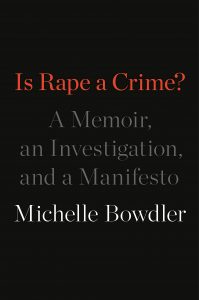
Michelle Bowdler, Is Rape a Crime?: A Memoir, an Investigation, and a Manifesto
Flatiron, July 28
Michelle Bowdler’s Is Rape a Crime? is a damning testimony to the many ways in which our institutions fail survivors of sexual assault. Bowdler turns an investigative eye to her own life, recounting the story of her assault and the reactions by police and the legal system that fell short of what she needed in the aftermath. This account stands alongside her historical analysis of these systems, a criticism of their structure, and her ideas on how our society can better serve survivors. –Corinne Segal, Senior Editor
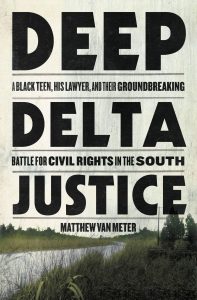
Matthew Van Meter, Deep Delta Justice: A Black Teen, His Lawyer, and Their Groundbreaking Battle for Civil Rights in the South
Little, Brown, July 28
I’ve been expecting this book for the better part of a decade because Matty Van Meter has been writing about criminal justice issues at least since I was in high school—where he was one of my brilliant teachers. The story of Deep Delta Justice begins in 1966, when a Black teenager in Louisiana named Gary Duncan attempts to break up a fight. His trouble begins when he puts his hand on a white child. Van Meter traces how this incident and the trial that followed, Duncan v. Louisiana, eventually led to a major Supreme Court decision about one’s right to a jury trial. –Aaron Robertson, Assistant Editor
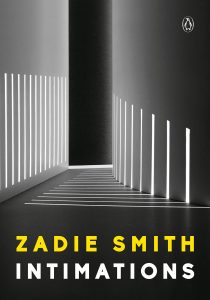
Zadie Smith, Intimations
Penguin Press, July 28
However productive you think you’ve been in the COVID lockdown period, please know that your paltry efforts pale in comparison to those of Zadie Smith, who somehow completed and edited an entire essay collection in just three months. Intimations, which shares its title with a recent Alexandra Kleeman short story collection (why does Smith keep stealing titles??), explores ideas and questions relating to the unprecedented situation in which we all find ourselves living: “What does it mean to submit to a new reality–or to resist it? How do we compare relative sufferings? What is the relationship between time and work?” Pretty much everything Smith writes is worth reading, and this latest collection will, I am sure, be no exception. –Dan Sheehan, Book Marks Editor
AUGUST
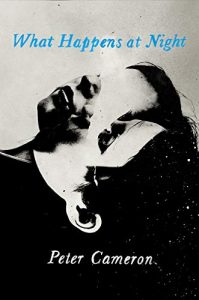
Peter Cameron, What Happens at Night
Catapult, August 4
I absolutely adored this icy, Kafkaesque novel about a couple who travels to a distant European land and its Borgarfjaroasysla Grand Imperial Hotel to adopt a child. It’s hard to tell how exactly to interpret the book’s atmosphere—the surrealist qualities are so cosy with the real—which is something that often doesn’t work. But here, Cameron nails it, letting us have both dream and reality at once, in the most compelling, delicious fashion. –Emily Temple, Managing Editor
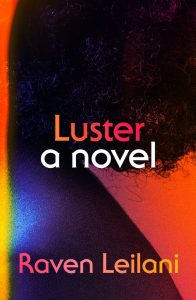
Raven Leilani, Luster
FSG, August 4
As previously described: Sure, like many popular recent novels by young American women, the narrator of Luster is bored, and self-destructive, and working at a job she hates. But she is the fierce, unruly antidote to what Jess Bergman called the “remote avatars of contemporary malaise”—she is not cool, nor detached, nor noncommittal, but absolutely bursting with thoughts and feelings and desires, some of which often spill over and make a mess, or a scene, or a bonfire. Edie talks shit but also takes it—she’s hilariously caustic about the world around her, but her criticism never feels empty. I loved every minute of this debut. –Emily Temple, Managing Editor
Kapka Kassabova, To the Lake: A Balkan Journey of War and Peace
Graywolf, August 4
The literature of the world’s borderlands is ever-expanding, even as this or that nation state seeks to impose its brittle authority on those spaces where trade, culture, and language intersect in a great, vibrant human mess, building walls where none should be. Kapka Kassabova’s 2017 Border, which explored the edgelands of Turkey, Bulgaria, and Greece, was a gripping read (see for yourself, here), so I’m very much looking forward to To the Lake, in which she journeys to the mountainous borderlands of North Macedonia, Albania, and Greece—her grandmother’s homeland—finding much more than the ancestral legacy she’d set out to uncover. –Jonny Diamond, Lit Hub Editor-in-Chief
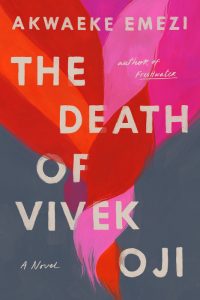
Akwaeke Emezi, The Death of Vivek Oji
Riverhead, August 4
As previously described: We know Vivek Oji is dead before the story even begins. Like other incredible novels that begin this way (Gabriel García Márquez’s Chronicle of a Death Foretold comes to mind), the story ebbs and flows through time around this undeniable fact, the impetus for the telling. It feels like a story passed down to you, something best read aloud. The opening passage asks you to picture the story as a stack of family photographs; you feel welcomed, lulled into the start of a good story by a master storyteller. And Akwaeke Emezi is indeed just that; have you read their debut, the critically acclaimed Freshwater? In this new novel, the protagonist is similarly touched by something unknowable and otherworldly; Vivek Oji is prone to blackouts, moments of complete separation from self and surrounding. This is something we know from the beginning, something to track as we follow the course of his life, relayed to us by those closest to him. (Sometimes, Vivek interjects, and it is a jarring delight.) The Death of Vivek Oji is an alchemy of personal family story and untouchable myth. It circles itself, like a shark preparing to take down its prey; reader, you will be disarmed. –Katie Yee, Book Marks Associate Editor

Jonathan C. Slaght, Owls of the Eastern Ice: A Quest to Find and Save the World’s Largest Owl
FSG, August 4
As previously described: For five years, the author seeks to save the world’s largest owl (he thought it was a bear with feathers when he first encountered it), a bird native only to a remote region of Russia. Using a blend of reportage, narrative nonfiction, memoir, science journalism, and travel writing, Slaght also encounters a fascinating cast of characters along the way who consider him a different kind of rare creature since, as few foreigners ever visit the landscapes of eastern Russia. Slaght’s entertaining, sometimes elegant prose propels the narrative thrust of this book, and his scientific knowledge buoys the story from underneath. Owls reminds me of Helen Macdonald’s H is for Hawk and Robert Macfarlane’s Underland, in that an exploration into one thing (owls, the earth) ends up in other places (the human condition, personal reckonings). This is a force of modern day nature writing with gravity and humor, and I’m betting it will be one of the more widely-acclaimed nonfiction books of 2020. –Kerri Arsenault, Lit Hub contributing editor

Edward Ball, Life of a Klansman: A Family History in White Supremacy
FSG, August 4
As previously described: Just over 20 years ago Edward Ball won a National Book Award for his memoir, Slaves in the Family, a profound excavation of his family’s history of owning slaves. That it did not spawn a similar reckoning among southerners—as Gunter Grass’s memoir did with Germans, who found their families full of Nazi pasts—should have earned more attention. One of the great things about that book was how Ball made it a story driven by the lives of those his family had, in essence, erased.
Now in his biggest book since, Ball has written a biography of his great-great-grand-father, Constant Lecorgne, a carpenter and father of five who came to be an active true believer in the Klu Klux Klan in Louisiana after the Civil War, a man who on the outside appeared to be living a mundane existence. But who in reality had committed himself to spreading racial terror in the most hateful and violent ways: night raids, street rampages, the whole theatre of fear drummed up to undo the reality of 4 million recently freed African Americans.
Ball tells his story with curiosity, disgust, and a sweeping lamp of novelistic imagination, making his tale all the chillier for being so intimate, so intensely realized. He also tracks down the descendants of the victims of the Klan’s terror and violence, unspooling their stories in a history which is all the more painful for its points of interconnection. With—by some estimates—over half of whites in American having an ancestor at some point in their past being a member of the Klan, this is an important work of America’s collective history—one whose ghosts are most undead. –John Freeman, Lit Hub Executive Editor
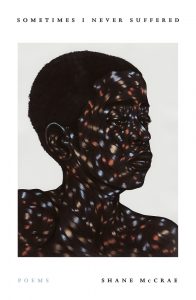
Shane McCrae, Sometimes I Never Suffered
FSG, August 4
The New Yorker‘s Dan Chiasson has called Shane McCrae “a shrewd composer of American stories,” with work that reflects a deep understanding of the many modes of American speech. With Sometimes I Never Suffered, McCrae continues to create works of endless invention, those that yield sharp insight about contemporary life. –Corinne Segal, Senior Editor
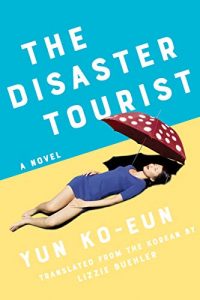
Yun Ko-eun, tr. Lizzie Buehler, The Disaster Tourist
Counterpoint, August 4
I read Yun Ko-Eun’s unsettling, off-kilter, and at times very funny thriller relatively early in New York’s lockdown, and found it to be, if not a twin of my feeling, at least an empathetic cousin to them. Yona is a long-time employee of a company that coordinates travel to the sites of disasters, and she takes a trip to the impoverished (and sinkhole-ridden) island of Mui to assess its continued viability as a destination. The novel is deeply moral without feeling moralizing, and its anxiety feels free-floating until it builds to a fever pitch. Read it, and find some relief in the fact that you won’t be traveling for a while. –Jessie Gaynor, Lit Hub Social Media Editor
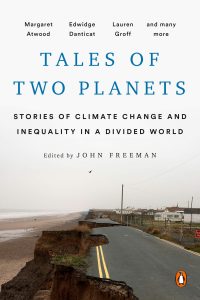
John Freeman, ed., Tales of Two Planets: Stories of Climate Change and Inequality in a Divided World
Penguin Books, August 4
As previously described: The third in Freeman’s hat trick of anthologies that examines inequalities, Tales of Two Planets, may be the most important, for it addresses a colossal and irreversible threat: climate change. How to tell this story about a landscape so altered by us it’s reciprocating the abuse, where the more vulnerable and poor are more susceptible to environmental injustices?
Freeman asked 36 writers from Iceland to India, who are living within the penumbra of this bifurcated world of disparity and disenfranchisement, to bear witness to climate change beyond mere data. They are the facts on the ground, and their stories about craven US governance, the depletion of species in Burundi, Iceland’s geologic tragedy, the displacement of 20 million people in Pakistan, and resource pilfering and greed in Lebanon trace the inequalities that have also led to environmental imbalances. The purpose of such essays, fictions, reportage, and poems are to remind us—as Lina Mounzer discovers when developers overburden the sewer system in Beirut and it erupts in biblical proportions—we can’t carry on as if things will sort themselves out. We have to live within limits.
It’s a dark path we walk when the majority of the planet belongs to Hobbes’s First Man, condemned to a poor, cruel and short life, while Frances Fukumaya’s Last Man, (privileged, well fed, with access to technology and globalization’s muse) inhabits the rest. The Last Man will survive environmental stress and scarcity. The First Man will not. Freeman’s collection is critical to understanding our planet beyond the scope of our own personal plights. –Kerri Arsenault, Lit Hub contributing editor
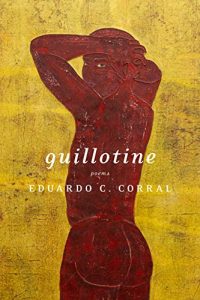
Eduardo C. Corral, Guillotine
Graywolf, August 4
Eduardo C. Corral’s debut collection Slow Lightning won the Yale Younger Poets Prize; now, he’s back with Guillotine, a stunning follow-up to that work. His speakers walk through what Ethan Milner, writing for The Scores, called “a perilous terrain of shattered glass, arid heat, and spiny saguaro,” with long-lasting and devastating consequences. –Corinne Segal, Senior Editor
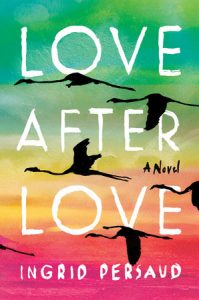
Ingrid Persaud, Love After Love
One World, August 4
This debut novel by Trinidadian author, Ingrid Persaud, takes on family, what we owe, who we choose, and the secrets that we keep to protect those we love. When Solo’s father dies, his mother, Betty, takes in a lodger, Mr. Chetan. One night, Solo overhears his mother reveal something earth-shattering to Mr. Chetan, and Solo leaves his home and his mother to live in New York and try to put the pieces of his family lore back together. At times hard, and harrowing, but also warm, tender and deeply connected, much like a family, Love After Love delivers on all that it promises. –Julia Hass, Lit Hub Editorial Fellow
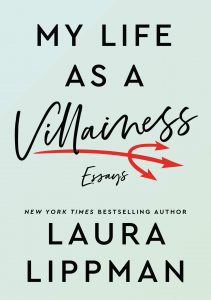
Laura Lippman, My Life as a Villainess: Essays
William Morrow, August 4
While most of us came to know Laura Lippman’s work first, through her groundbreaking Tess Monaghan series, and then through her numerous and always well crafted standalones, it’s Lippman’s nonfiction that’s been playing my heartstrings lately—she’s spent the past couple of years writing a beautiful, moving, and always wry essay series on aging and life after 60, full of wisdom when it comes to caring, and advice on when not to care. Her new essay collection draws from the same well of deep thought, wry wit, and hard-come-by wisdom, and should be equally loved by crime fans and literary essay stans alike. –Molly Odintz, CrimeReads Senior Editor
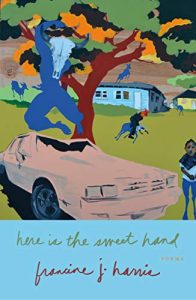
francine j. harris, Here is the Sweet Hand
FSG, August 4
In an interview with Kaveh Akbar, francine j. harris said, “I’m not the kind of person who’s interested in preserving language. I love how it changes.” Her third collection, Here is the Sweet Hand, brings this approach to language with poems that lie at the intersection of sexuality, aging, art, and race. –Corinne Segal, Senior Editor

Araminta Hall, Imperfect Women
MCD, August 4
I was blown away by Hall’s American debut, Our Kind of Cruelty, and her new novel, Imperfect Women, promises to please those who enjoy psychological thrillers and all those who love Elena Ferrante but wish her series was just a bit (okay, a lot) more twisted. Told from the perspectives of three friends since college and their ups and downs over the next decades, culminating in the untimely death of the center of the group, Hall’s suspenseful and astute thriller should keep us guessing till the very last reveal. –Molly Odintz, CrimeReads Senior Editor
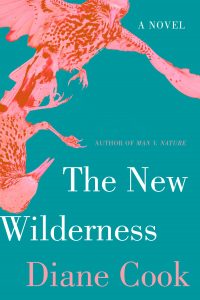
Diane Cook, The New Wilderness
Harper, August 11
As previously described: I’ve been impatiently waiting for Diane Cook’s first novel since I discovered her collection, Man V. Nature, in 2014. It’s finally here—and to answer your first question, yes, it was indeed worth the wait. For those of you lucky enough to already be fans of Cook’s, know that the novel is both unlike and like her stories—unlike in the sense that it is more spacious and essentially realist, despite the fact that it is set in a near-future version of the world we know in which there is only one plot of wilderness left, and like in its blinking humor, and in the sense that it tackles the deepest of human emotions—as well as big ideas about the planet—in satisfying ways. Also, it’s a page-turner! –Emily Temple, Managing Editor
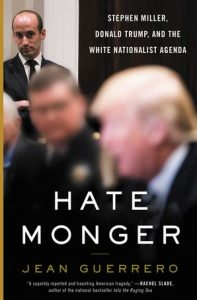
Jean Guerrero, Hatemonger: Stephen Miller, Donald Trump, and the White Nationalist Agenda
William Morrow, August 11
The architect of our current administration’s most discriminatory immigration policies was largely an obscure figure before arriving in the West Wing. Hatemonger chronicles how we got here, threading details of Miller’s early years and family background with clues as to how he formed a political approach that has brought disaster to thousands of American families. Like watching a train wreck in slow motion, this meticulous account is horrific but impossible to ignore. –Corinne Segal, Senior Editor

Nate Marshall, Finna: Poems
One World, August 11
Nate Marshall’s long-awaited second collection is a dazzling and heartbreaking book, surely the year’s breakthrough volume. Beginning with a series about his name—poem by poem, Marshall reclaims himself in sound:
family, this is my name
a myth that i don’t own alone. i never even meant
to have this name this just a happy accident of birth,
an unhappy coincidence of intersecting histories,
an abbreviation that became law.
Marshall writes of other Nate Marshalls who didn’t make it out of Chicago; he writes of the Nathaniel he almost became; he even writes of a racist Nate Marshall who trolls him on twitter, and who his students troll back. Amazingly, this last man earn his unironic sympathy. “i too have sat suspicious in my basement/wondering who was coming for my country.”
Finna is a book full of this kind of complex aphoristic love, often direction for and toward his people, as the dedication elegantly puts it: “the ones I love &/especially the ones I struggle to love.” Stripped of most commas, using ampersands to pivot, Marshall’s syntax beautifully transmits sound—and that sound across Finna is one of longing and anguish, grief and regret. It is a Black voice celebrating its sound. These poems ache to be said aloud and upon reading sink deep. –John Freeman, Executive Editor
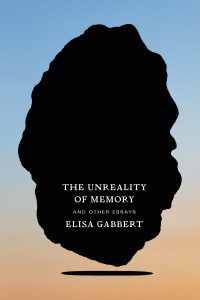
Elisa Gabbert, The Unreality of Memory
FSG Originals, August 11
Elisa Gabbert’s essays are always worth reading. (Again, I must hand it to the prose-writing poets.) If your mind needs a respite from (gestures at internet) all the stuff, treat it to a collection of “provocative, searching essays on disaster culture, climate anxiety, and our mounting collective sense of doom.” Not necessarily uplifting, but personally, I find reading the meditations of a brilliant writer, particularly meditations about the dread I can’t shake, both soothing and invigorating. –Jessie Gaynor, Lit Hub Social Media Editor
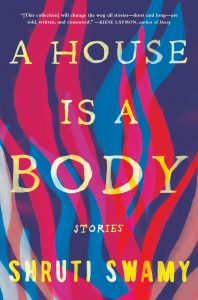
Shruti Swamy, A House is a Body
Algonquin, August 11
Swamy’s debut book of fiction is one of the year’s more eagerly anticipated short story collections. Swamy writes, among other things, about the social and cultural pressures that shape the lives of women. The titular story, which The Paris Review published in 2018, showcases Swamy’s voice, notable for its elegiac and conversational pitch. –Aaron Robertson, Assistant Editor
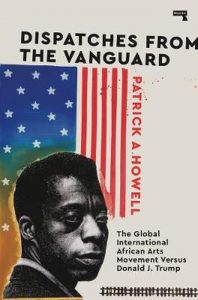
Patrick A. Howell, ed., Dispatches From the Vanguard: The Global International African Arts Movement Versus Donald J. Trump
Repeater, August 11
Patrick Howell has gathered voices from a transnational body of artists, writers, thinkers and activists who have been working steadily in the shadow of the Trump administration. Mobilizations against white supremacy are proposed by people like Nikki Giovanni, Nnedi Okorafor, Tyehimba Jess and many others. –Aaron Robertson, Assistant Editor
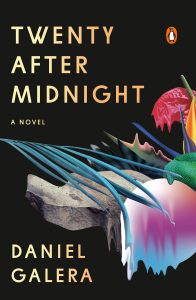
Daniel Galera, tr. Julia Sanches, Twenty After Midnight
Penguin, August 11
A group of friends in Porto Alegre whose swinging heyday was the 90s are brought together by the death of a friend twenty-five years later in Daniel Galera’s barbed and swift new novel. “Andrei’s unexpected death had thrown a grenade into Brazil’s drowsy literary scene,” says the book’s 33-year-old narrator, reeling from his former friend’s unexpected death in a mugging. Home again as an adult, he takes stock of the difference between now and then. Once they’d parted all night long, writing and publishing with fanatical zeal and utopian ideas on an e-zine called Orangutang. Now the group sits in the disquiet of their privilege, having broken down the ideas of Benjamin and Foucault into modern modern ad tools and social media strategies. They’re smart enough to know what a betrayal of their youthful optimism this is: it’s also impossible not to notice the city’s homeless, the summer stench and the glib cult of Facebook “suicides” and twitter declarations. So now they party for different ends—not to tune in, but to blot out what they know. The destination of the night, given the impulse, is different. –John Freeman, Executive Editor
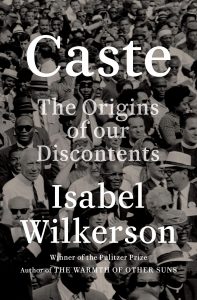
Isabel Wilkerson, Caste: The Origins of Our Discontents
Random House, August 11
Isabel Wilkerson’s The Warmth of Other Suns was a transformative account of American history, outlining the ways in which the Great Migration shaped the modern-day U.S. as we know it. Now, she reveals more about the inner workings of America by examining its hidden caste system, one governed by economic and racial hierarchies along with institutional structures that prioritize the powerful and demonize the less-advantaged. –Corinne Segal, Senior Editor

Sarah Chayes, On Corruption in America: And What is At Stake
Knopf, August 11
With trillions in government assistance thrown at business in the last three months and very little sense of who got it and why, one might say Sarah Chayes’ latest book is perfectly timed. Yet it remains to be seen how even this seriously damning exegesis of corruption will be taken. To quote one of Chayes’ own fiery articles in Foreign Affairs from three years ago, “despite paying lip service to the problem of corruption for decades, leaders in rich, developed countries have never treated it as more than a second-order foreign policy concern.” And to quote her here: “In the United States, serious and damaging public corruption is not getting punished.”
Indeed, quite the opposite. Beginning with the devastating 8-0 Supreme Court overturning of Virginia governor Bob McDonnell’s corruption conviction—which may be to federal corruption what Citizens United has been to corporate oversight—Chayes suggests we may be in for a new heyday of fraud. If that’s the case, this book reminds, take heart, it was ever thus: “On Corruption in America” traces this tradition in the US back a century and a half and finds it lurking at the heart of every single economic catastrophe. Graft and outright theft were at the heart of the building of US railroads, after all. Indeed members of Grant’s administration bribed to look the other way as the equivalent of $1 billion was skimmed in government funds. When the panic of 1873 ensued, it was the people working on railroads who lost everything: not the ones speculating on them.
Chayes follows this thread—that corruption isn’t just theft, but a transfer of value from labor to the rich—through the great Depression, the post-war period, the junk bond explosion in the ‘80s, the collateralize credit default swap Great Recession of the late aughts, and on up into today, revealing that at its core the US is built on this kind of graft. (And she doesn’t even go into the biggest theft of all—the land itself and the people stolen to America to work it)
In the book’s latter half, Chayes builds a comprehensive portrait for the way corruption has embedded itself into the bedrock of our politics, financial and judicial systems. In other words, how in spite of benefiting the precious few, it has remained the way things are done. Even when people are very, very angry. Perhaps a tipping point is coming. –John Freeman, Executive Editor

Chris Hamby, Soul Full of Coal Dust: A Fight for Breath and Justice in Appalachia
Little Brown, August 18
As previously described: In America’s coal country, miners and their families have been fighting the long blight of black lung for decades while facing inadequate access to health care, little to no government assistance, and active suppression from one of America’s most influential industries. Chris Hamby, who previously won a Pulitzer Prize for his reporting on this issue, details the story of miners’ struggle for justice, highlighting the people and relationships that have sustained these communities and the determined, meticulous organizing that it has taken to create change. Informed by many years of reporting, and including a breathtaking level of detail, this is an incredible story about power in America. –Corinne Segal, Senior Editor

Lawrence Osborne, The Glass Kingdom
Hogarth, August 18
As previously described: Osborne is among the finest pure writers at work today, and at this point he’s more than earned the Graham Greene comparisons. In his newest, The Glass Kingdom, he returns to a scenario that will enthuse admirers of his The Ballad of a Small Player: a mysterious fugitive settles into uncanny, luxurious surroundings in an Asian city. Here, the city is Bangkok, and the fugitive in question is a young American woman with a mysterious source of funds and a new address in a tony Bangkok apartment building. She soon taps into an odd community of expats from across the globe, all confined to the building’s louche surroundings, with too many secrets to count among them. –Dwyer Murphy, CrimeReads Editor-in-Chief
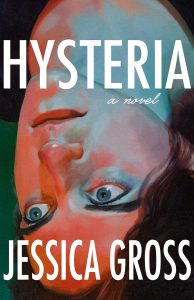
Jessica Gross, Hysteria
Unnamed Press, August 18
As previously described: At first, Hysteria feels like another entry in the canon of recent novels about self-destructive, masochistic young women—but soon things start to shift, as our extremely lustful, extremely self-hating heroine meets a man at a bar and . . . decides he is Sigmund Freud. Which, twist. After that, the novel only gets weirder, and only goes deeper, the centerpiece a half-real, half-fantasy recollection of the narrator’s first orgasm, and in the end, the whole thing feels like an R-rated, modern version of Clarice Lispector’s insane, intense The Passion According to G. H. If you’re into that kind of thing. –Emily Temple, Managing Editor
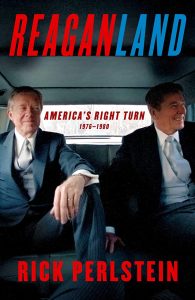
Rick Perlstein, Reaganland: America’s Right Turn 1976-1990
Simon & Schuster, August 18
With this mammoth but light-footed book Rick Perlstein concludes his extraordinary trilogy on the rise of American conservatism. From Goldwater’s presidential campaign in 1964 to Reagan’s victory in 1980, a social movement swept to power in America, ushering in what would become the most far-right ideology of any ruling power in any industrialized state. Perlstein’s gift has been to examine how that happened not as a strategist, but as the ultimately political beat reporter: finding out what coalitions and which turning points made it possible. Which moral compromises on policy.
Where this book begins, Reagan appeared to be on the ropes: Ford’s loss of the presidency was hung on his neck, he didn’t appear to have a winning coalition. But several things would come together in these four years, capitalizing on Carter’s bumpy years: a combination of religious fundamentalism, racism, anticommunism and free market believers banded together to define themselves against liberalism. And Reagan—for all his optimism—was more than happy to carry their flag. Even (or especially) when it meant demonizing equal rights, gay Americans, or anyone who carried an unwanted child. Vividly told and profoundly well researched, Reaganland is essential reading for anyone who wants to understand how American politics wound up where it is today. –John Freeman, Executive Editor

Emma Jane Unsworth, Grown Ups
Scout Press, August 18
A book born of the digital age, with snippets of text conversations and emails intermingled into the rest of the searing, hilarious prose, Grown Ups tells the story that we all fear might be true of ourselves: that we’ve never really known how to grow up, or maybe how to be, at all. The familiar and vulnerable protagonist, Jenny, has a life that feels out of control. She’s been fired, dumped, and all of her friends seem to have their lives together in a way that feels impossible for her to muster, and on top of it all, her mother moves in. With that dry British humor we can’t get enough of, Grown Ups is both tender and comedic, and makes us both feel less alone and more able to take on our own messy and valuable lives. –Julia Hass, Lit Hub Editorial Fellow
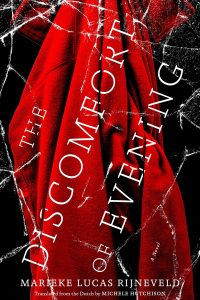
Marieke Lucas Rijneveld, tr. Michele Hutchison, The Discomfort of Evening
Graywolf, August 18
I wave my lantern at a bird to drive it away,” Marieke Lucas writes in their debut novel. “The candle wobbles dangerously, and a drop of candle-grease falls on my welly. The startled bird flies up into a tree.” The Discomfort of Evening, the story of a young girl whose family experiences an unexpected tragedy on their dairy farm in the Netherlands, falls into one of the more alluring categories of fiction: childhood innocence distorted. Lucas is great at upping the reader’s sense of dread. –Aaron Robertson, Assistant Editor

Judith Schalansky, tr. Jackie Smith, An Inventory of Losses
New Directions, August 25
As previously described: It’s an interesting time to read a book about lost places and things, but I found a strange comfort in Judith Schalansky’s An Inventory of Losses—a collection of stories about things and places that no longer exist, from a sunken Pacific Island to a fragment Sappho. Schalansky writes with such precision and wonder that reading the collection felt like touring a meticulously curated museum. At the same time, each story imbues its loss with immediacy—I couldn’t help but mourn even the ones I had never before considered. –Jessie Gaynor, Social Media Editor
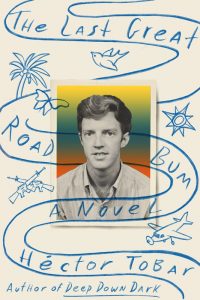
Héctor Tobar, The Last Great Road Bum
MCD Books, August 25
As previously described: As a reporter and novelist, Héctor Tobar often acts as a biography in miniature. In his fantastic—and ought to be rereleased travelogue, Translation Nation, he criss-crossed America, interviewing Latinx people and retelling their stories, how they came to where they lived, what they did, how life seemed to them. The speed and respect and sensitivity with which Tobar can encapsulate a life, whether it’s a trapped Chilean miner, as in his Deep Down Dark, or a domestic worker just trying to get children to safety, as in his tender 2011 novel, Barbarian Nurseries, is dazzling.
Finally Tobar is back to fiction in The Last Great Road Bum and he’s written a kind of inside out version of one of his books. It tells the tale of a real life white man from Illinois, Joe Sanderson, who spent most of his life traveling the globe, from Vietnam to Jamaica to El Salvador, where he wound up finding (and dying) with Che-inspired guerillas. Tobar first wrote about the story in an LA Times column, he has now turned into a highly absorbing and thought provoking nonfiction novel about the forces that can blow a person sideways through life. Drawing from Sanderson’s letters, the novel muses on who gets to tell stories as it probes the lines between myth and reality. This is first rate storytelling from a writer who deepens the sky with every book he writes. –John Freeman, Lit Hub Executive Editor
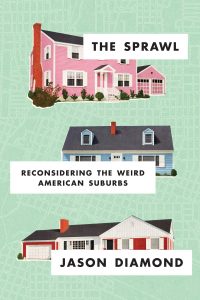
Jason Diamond, The Sprawl
Coffee House, August 25
As previously described: The suburbs of America have been the unlikely muse for many musicians, writers, and filmmakers. But narratives about the suburbs often pause at a surface level, using them as shorthand for conformity and not taking a deeper look at what makes them tick. In his new book The Sprawl: Reconsidering the Weird American Suburbs, Jason Diamond explores the unexpected history that shaped many a suburb while also venturing into the notable art that arose from them. It’s the rare work of cultural criticism with a purview that encompasses William Gibson, Celeste Ng, and Anthony Bourdain—and it’s all the stronger for it. –Tobias Carroll, Lit Hub contributor
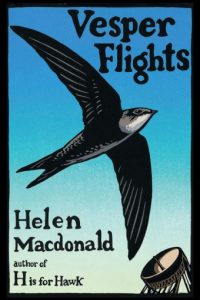
Helen Macdonald, Vesper Flights
Grove, August 25
As previously described: On a recent afternoon in my bed, I got teary-eyed over the loss of a hometown mall. When it opened in the 1950s in a suburb of Detroit, it was the world’s largest shopping outlet, hailed as the future of post-war leisure in America. In Vesper Flights, Helen Macdonald’s variegated essay collection, the author calls this mourning “the casualties of fast capitalism for your own generation”—sorrow for what has been lost to me, an injury against my memory of place, though the rituals of capitalist consumption are still alive and well. J.C. Penney and Nieman Marcus are going under and perhaps, for a little while, we can see birds in the sky more clearly, slow for a herd of mountain goats in Wales, and hear a screaming peacock somewhere on the streets of Dubai. These images remind us of what Macdonald writes of so sensitively in this book: the interwound life cycles of humans and other species, how inextricable organisms are from their environments, natural and artificial, and the awareness that our efforts to shape the world as we think it ought to be make it “harder and harder to have faith that the way things are going can ever be reversed.” Macdonald ensures you won’t see certain things the same way after reading Vesper Flights: birds’ nests, field guides, boars, and other surprising miscellany. My favorite essay, “High Rise”—about the life that exists above us, in the rarefied domain of skyscrapers—best encapsulates Macdonald’s call for us to imagine a more aesthetically and morally complex world. –Aaron Robertson, Assistant Editor
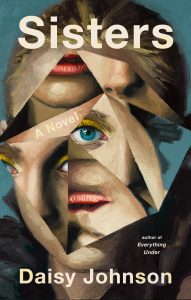
Daisy Johnson, Sisters
Riverhead, August 25
As previously described: Sisters is a dark, atmospheric novel that explores the tension of familial closeness, both physical and emotional, and unfolds in a house in near-isolation… and somehow Daisy Johnson wrote it before the pandemic. Prescience aside, Sisters is one of the rare novels that balances an almost-uncomfortable level of tension with gloriously stylish prose throughout. There’s an element of escapism in the profoundly creepy, and the masterful claustrophobia of Sisters will deliver you from your own. –Jessie Gaynor, Social Media Editor
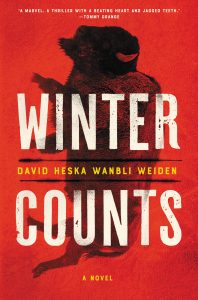
David Heska Wanbli Weiden, Winter Counts
Ecco, August 25
Winter Counts is one of 2020’s most exciting debut novels, the start of what we hope will be a long and many-volumed career in crime fiction. Meet Virgil Wounded Horse, the man who takes on the jobs traditional law enforcement can’t handle on the Rosebud Indian Reservation in South Dakota. He’s determined to find out how heroin is flooding the reservation, a crusade that takes him across the parched, corrupted landscapes of the American West and after organized crime figures fueling the systemic injustices already in place on the reservation. This is urgent, hard-hitting crime fiction that will keep you reading. –Dwyer Murphy, CrimeReads Managing Editor
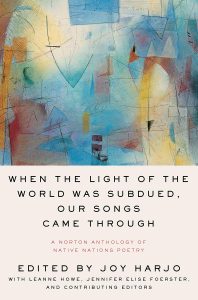
Joy Harjo, ed., When The Light of the World Was Subdued, Our Songs Came Through: A Norton Anthology of Native Nations Poetry
Norton, August 25
This rich landmark anthology, edited by US Poet Laureate Joy Harjo and others, brings together 160 poets from over 100 nations, showcasing the enormous range and energy of Native poetry, a force which stretches back hundreds of years. Organized geographically, the book culls from oral poetic traditions and written ones as well, and builds up to the vibrancy of the present, a period well-curated in Heid Erdrich’s anthology of two years ago. –John Freeman, Executive Editor

Harold Holzer, The Presidents vs. the Press
Dutton, August 25
Even before our current president was aiming outright hostility at members of the press, the executive branch’s approach to journalists was an important measure of its attitude toward public image and the First Amendment. Holzer’s The Presidents vs. the Press takes a close look at that relationship while relaying a number of fascinating anecdotes from various administrations throughout history. –Corinne Segal, Senior Editor
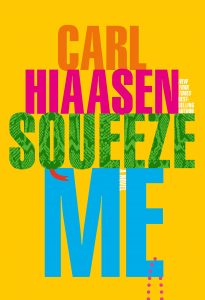
Carl Hiaasen, Squeeze Me
Knopf, August 25
If he weren’t reigning king of screwball crime fiction, you’d wonder just what in the hell Carl Hiaasen was thinking with his new book, which takes on two great Florida scourges: the current President’s demented Palm Beach demimonde and the influx of invasive pythons in Florida’s islands and waterways. Then you think it over for a while and realize that it might just be the greatest collision of worlds ever dreamed up by an immensely imaginative and enjoyable writer, one who revels in capturing and skewering the absurdities of modern society. –Dwyer Murphy, CrimeReads Managing Editor

Vanessa Veselka, The Great Offshore Grounds
Knopf, August 25
My first encounter with Vanessa Veselka’s writing was this absolutely astonishing GQ essay, and I’ve been an admirer ever since. This, her second novel, tells the story of half sisters brought together by the promise of financial security. Instead, they’re given world-reconfiguring information with which they must grapple. A cross-country epic of complicated family dynamics and secrets waiting to be uncovered sounds like a fitting showcase for her considerable skills. –Jessie Gaynor, Lit Hub Social Media Editor
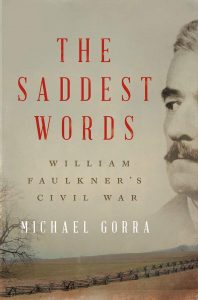
Michael Gorra, The Saddest Words: William Faulkner’s Civil War
Liveright, August 25
William Faulkner took one trip to Europe before winning getting The Call from Stockholm a quarter century later. But when he was 27, a book in his pocket, he steamed to the continent, traveled across the Alps and spent his summer at a cheap hotel on rue Servandoni in the 5th. He didn’t dine with Ernest Hemingway or visit with Gertrude Stein. He passed James Joyce in a cafe but was too afraid to speak. Most of his time he sat on a bench in Luxembourg Gardens, writing—surrounded by statues of a past which wasn’t past.
To read this period recounted by Michael Gorra in his elegant new critical biography, The Saddest Words, it becomes clear that Faulkner’s mind would never leave the world which made it. That the amnesiac attitude toward the war and what it was supposed to have concluded was far more interesting to him than anything in Paris. In recent work on Faulkner, Philip Weinstein argued Faulkner was modernism’s American interpreter. Shuttling between biography, civil war history, and the novels Faulkner wrote around both, Gorra has given us a new way to read one of America’s greatest novelists. Not as an American Balzac, as Frederic Karl saw Faulkner in his endless 1,100-page biography, or a grateful magpie to continental literature, as he occasionally appears in Weinstein’s work. But as a writer who saw in telling the pre-history and aftermath of the Civil War that he could look at America’s defining conflict by looking away from it.
Gorra has made a life of writing and teaching the British novel, but he comes to Faulkner with a deep understanding of the Mississipian’s work, too. Weaving from the great works to Civil War history, to snags on Faulkner’s life and the trends of his time, Gorra never attempts to make a grand design. Nor does he fall into the trap of being in awe of his subject, of granting him largeness of spirit he does not always demonstrative. On several occasions, as with Go Down Moses, he even admits Faulkner missed an opportunity to go deeper.
Still, Gorra appreciates how some of the best literature creates a space in which forms of memory persist to those who care to see their ghosts. If a straight up biography is what you’re after, Jay Parini’s work may be a better place to start. But this is the first major fresh read of Faulkner’s work since Eduoard Glissant’s Faulkner, Mississippi, and it’s a joy to read. –John Freeman, Executive Editor
SEPTEMBER
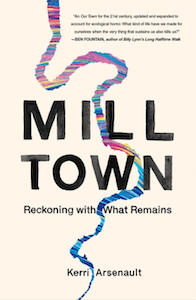
Kerri Arsenault, Mill Town
St. Martin’s, September 1
What happens to a town created by an industry that then poisons it? Can people leave—why wouldn’t they? How many cities across America, let alone the world, would fit this category? Kerri Arsenault’s devastating debut book Mill Town is very much about a Maine village and its paper mill. She vividly brings to life the pride and lack of opportunities that keep people trapped there when the mills shut down, and cancer rates explode. But it’s also a story for our time, in which corporations decreate the environment with acts of slow violence. Drawing on deep and compassionate reporting, talking to her classmates from high school, neighbors, her own mother—Arsenault’s father died of cancer he probably contracted at the mill—this book makes visible the people whose lives have been treated as expendable, rendering them with humor and complexity. There are no answers here, just mourning. This book will be a classic of American nonfiction reporting for years to come, right up there with Adrian Nicole LeBlanc’s Random Family, Matthew Desmond’s Evicted, and Jesmyn Ward’s Men We Reaped. –John Freeman, Executive Editor
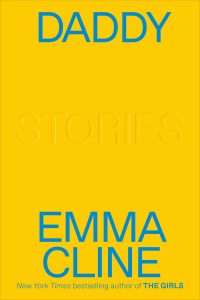
Emma Cline, Daddy
Penguin, September 1
As previously described: I must confess that I never got around to reading The Girls—Emma Cline’s blockbuster 2016 novel about a listless California teenager who gets sucked into the orbit of a Manson-like cult—but after reading Daddy, the author’s dark and brilliantly disquieting debut story collection, I fully intend on adding its predecessor to my TBR pile. Cline’s sharply-drawn characters are the cowed, contemplative survivors of self-inflicted trauma, both seismic and quotidian—from the father whose past anger issues have irreparably damaged his relationship with his daughter, to the nanny hiding from the paparazzi after the affair with her movie star boss is discovered, to the radioactive editor fleeing a workplace sexual misconduct scandal. We join them in the paralyzed aftermath—elegantly conjured limbos where regret is a constant companion. This all sounds dour, and I suppose it is, but Cline writes with such grace and precision that every sentence is a joy to absorb. –Dan Sheehan, Book Marks Editor
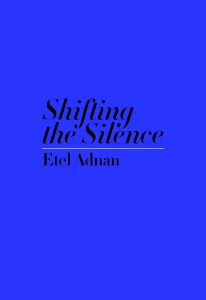
Etel Adnan, Shifting the Silence
Nightboat, September 1
Like the sea at night, this stark, but warm book moves in waves, the 93-year-old Lebanese poet and painter casting her mind back and forth in the room of its container. She contemplates the Greeks, the endless battle in Picasso between the sexes, coming tides which remain obscure. Hers is a restless moonlit searching, unassuaged before the big questions. Who is she speaking to, she wonders, and why? “There is a loneliness to any ending,” she ponders, then adds, mysteriously, “but we have felt even lonelier.” As if to prove it, “Shifting the Silence” evolves into a kind of diary, friends emerge and even call, come to visit her in Paris, which she describes with the brisk movements of a master painter. “It’s Paris now, under fog. The Eiffel tower is turned into a smudge, a faint mark on pure space. People’s hands are in their pockets, the river Seine feels icy. You have to walk fast to keep some warmth in you. All the international negotiations sound ridiculous compared to the simple, basic questions that we ask: do angels still care? Is the human species going to survive, and by the way, is this question really important?” –John Freeman, Executive Editor

Ricky Riccardi, Heart Full of Rhythm: The Big Band Years of Louis Armstrong
Oxford University Press, September 1
Ricky Riccardi has devoted much of his professional life to the preservation of Louis Armstrong’s legacy. His next book looks at the under-recognized middle period of the musician’s life, when Armstrong laid the foundations for swing music and bebop. We remember Armstrong as that smiling man with the unforgettable voice, but Riccardi restores the great complexity of his life, highlighting a formative phase in which the musician experienced some of the lowest points of his career. –Aaron Robertson, Assistant Editor
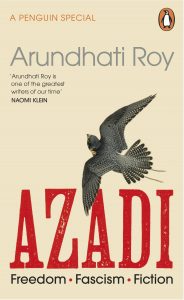
Arundhati Roy, Azadi: Freedom, Fascism, Fiction
Haymarket, September 1
Azadi is the Urdu word for freedom, and in these nine new essays, written over the last two years, Roy beckons readers to ponder its meaning in a world in which authoritarianism has crept to every corner of the globe, a world in which Modi—let alone Trump—seem stubbornly undefeatable. You will not find a polished riff here on the benefits of the shutdown. Roy watches and notes how the crisis was exploited before it was even a crisis, perhaps hastening its effects. That doesn’t mean it can’t still be a portal for us, however, she writes. “It has mocked immigration controls, biometrics, digital surveillance and every other kind of data analytics, and struck hardest—thus far—in the richest, most powerful nations of the world, bringing the engine of capitalism to a juddering halt.” Where do we want to go from here? Is it really just simply getting that engine restarted? Was it really working for us she asks? –John Freeman, Executive Editor

Maxim Loskutoff, Ruthie Fear
Norton, September 1
Loskutoff is one of the most interesting and imaginative writers of the American West at work today. His 2018 debut, Come West and See, was a haunting and brutally beautiful collection of stories set in isolated parts of Montana, Idaho, and Oregon, and in his first novel he returns to rugged landscape of the Mountain West. Ruthie Fear is our eponymous heroine, raised in Montana’s imperiled Bitterroot Valley by a troubled single father, trying to find her place in a society shaped by violent men. –Dan Sheehan, Book Marks Editor
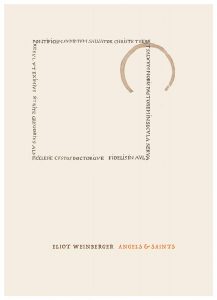
Eliot Weinberger, Angels and Saints
New Directions, September 1
In this remarkable book, Eliot Weinberger deploys his trademark deadpan equipoise to describe one of the world’s most startling beliefs (or phenomena): angels. Drawing from a wide variety of texts, from the Middle Ages and others much further back, and framed by illustrations of grid poems attributed to the eighteenth century Benedictine monk Hrabanus Maurus, Angels and Saints is a virtuoso demonstration of a writer getting out of the way of his subject’s fabulous detail. What to make of the fact that the word hierarchy was invented to describe angels? Or that the gravity-driven movement of blood in the body of a corpse might bring discolorations to the back in the shape of wings? Juxtaposition, as always in Weinberger’s work, does stark work here, too. In the second half, Weinberger tells many short biographies of the saints, from Columba from Ireland, to one pour soul, “a forest hermit…killed by a hunter who mistook him for a deer.” Angels, though speaking in tongues, are generally agreed to be incorporeal, to have almost no personality in the Bible (with the exception of Gabriel). The Saints however are all body—and in their flesh we see, perhaps, ourselves. Parts of this book feel as private as prayer; others like lamentation that there can be no meaning without pain. –John Freeman, Executive Editor
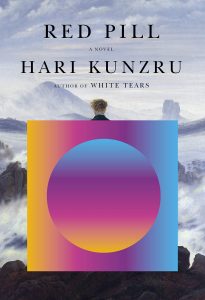
Hari Kunzru, Red Pill
Knopf, September 1
Hari Kunzru’s White Tears is one of my favorite works of literary horror—part ghost story, part history of music, part meditation on race and privilege—so I can’t wait to read Red Pill, a novel that deals with the alt right and the commodification of state violence. I have no doubt Kunzru will handle both with terrifying deftness (and deft terrifyingness). –Jessie Gaynor, Lit Hub Social Media Editor
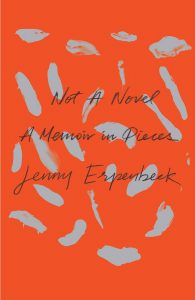
Jenny Erpenbeck, tr. Kurt Beals, Not a Novel: A Memoir in Pieces
New Directions, September 1
This collection of essays, memoirs and critical pieces forms an intellectual biography of Europe’s most history-obsessed writer. Beginning with her childhood in East Berlin in the early ‘60s and ‘70s, the book moves in concentric circles, from the intimate and understatedly moving – such as her essay on the bureaucracy of her mother’s death—to the moment History collides with her life and gives it a feeling of having been seen, such as the night the wall fell. In the aftermath, Erpenbeck remembers, there is a rush to suddenly move forward and erase the shameful past. “Recently, I opened the newspaper to find an obituary for my elementary school,” she writes. “Places always disappear in two stages,” she notes. “The first stage: the place is emptied out, grown over, it collapses . . . and then the second: the place is wiped out and replaced.”
In the book’s second and third sections, Erpenbeck moves on to culture and music, to Europe’s recent convulsions – yet there remains a feeling of bewilderment and curiosity in all of Erpbeck’s essays. Writing on her grandmother and great-grandmother’s past, on now unfashionable influences like Mann and E.T.A. Hoffman, this book is an attempt to resist these two-prongs of forgetting. It’s the sound of a powerful voice singing the past into the present’s melody. –John Freeman, Executive Editor

Jennifer Nansubuga Makumbi, A Girl Is a Body of Water
Tin House, September 1
Best title award goes to this book, hands down. Jennifer Nansubuga Makumbi’s novel centers on a young Ugandan girl named Kirabo, raised by women, none of whom are her mother, and who have specific ideas about how a girl should be. Kirabo tries to understand the conflicting forces within her: rebellion, submission, power, timidness, as she also tries to grapple with her histories, both the knowns and unknowns. We are taken on Kirabo’s journey as she attempts to fit all the pieces of herself together. –Julia Hass, Lit Hub Editorial Fellow

Elena Ferrante, tr. Ann Goldstein, The Lying Life of Adults
Europa, September 1
I mean, it’s the latest Elena Ferrante—we’re all going to anticipate it, and then we’re all going to read it. –Emily Temple, Managing Editor

Eula Biss, Having and Being Had
Riverhead, September 1
Owning a house is a litmus test to your values—one Eula Biss’ gives herself with a clear eye and braced heart in this strong new meditation on buying and owning in a society as a white woman where some people descend from Americans once considered property themselves.
The book starts small, with tiny questions that feel almost like answers to questions a friend might pose. Where did she buy the place and why? Who does the house work and which neighbors are let in the door?=
Composed in lyric bursts, more similar to her early book of poems, The Balloonists, than her last, On Immunity, this new work has turned the interrogative mode into a sound. “To afford something like paint,” she writes in one chapter, “for someone of my class, is to announce your values, most often, not your financial capacity.”
The accumulation of these pieces disassembles and reassembles a class the way it is built—through time: by turning over its assumptions, policy, and language in the hand. “Consume,” a social historian reminds her, “is from the Latin consumere, meaning “to seize or take over completely.’ A person might consume food or be consumed by rage. In its earliest usage, consumption always implied destruction.” This is an essential book for our out-of-control times of greed. –John Freeman, Executive Editor
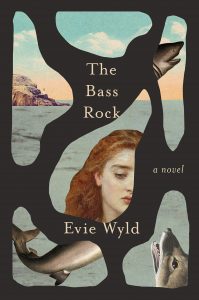
Evie Wyld, The Bass Rock
Pantheon, September 1
The latest novel from the Granta Best of Young British Novelist and author of All the Birds, Singing (which also had an incredible, refracted cover) concerns three women, separated by decades but bound by place: the titular Bass Rock, off the coast of Scotland, and by violence, perpetrated, of course, by men. Wyld can always be counted on for a haunting and propulsive experience, and I expect this book will be no different. –Emily Temple, Managing Editor
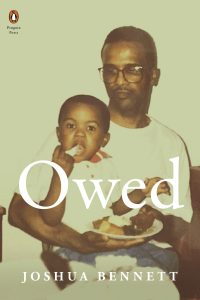
Joshua Bennett, Owed
Penguin Books, September 1
Joshua Bennett can do it all. A scholar, teacher, poet, critic, and performer, he’ll have two books out in 2020—the first of which, May’s Being Property Once Myself: Blackness and the End of Man, you can sample here, and the second of which is his second collection of poetry, Owed, which is described as “a book with celebration at its center,” is sure to be an equally essential text. –Emily Temple, Managing Editor
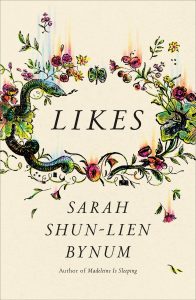
Sarah Shun-lien Bynum, Likes
FSG, September 1
I’ve been a fan of Sarah Shun-lien Bynum since her genre-bending debut Madeleine Is Sleeping, which was a finalist for the National Book Award (soon to be reissued! Buy it.), so I’m obviously itching to pick up her latest collection, which Danzy Senna describes as “a cunning, electrifying work by one of the best writers of our times.” This is for fans of Aimee Bender, Karen Russell, Joy Williams, and all that is good. –Emily Temple, Managing Editor
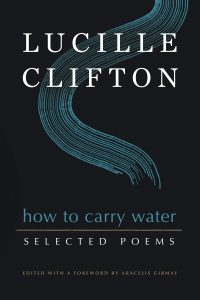
Lucille Clifton, ed. Aracelis Girmay, How to Carry Water: Selected Poems
BOA Editions, September 8
Lucille Clifton’s vast gifts have been scattered among many collections, and one too big to carry. This fantastic selection, which brings together ten newly discovered poems, and the best of the rest, ought to give her a new life in the hand. Has there ever been such a tenderly caring poet—more various and vulnerable? Open to any page and there is Clifton’s huge, gentle, spoken voice, its awesome tonal shifts—the deep cackle and the way it could hoist sorrow. What Clifton inherited from Langston Hughes and Gwendolyn Brooks she turned into her own unique sound. One this book makes clear will be eternal. –John Freeman, Executive Editor
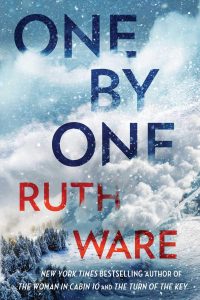
Ruth Ware, One By One
Gallery/Scout Press, September 8
I adore all of Ruth Ware’s books, but one concerned with a group of coworkers trapped in a ski valet during a blizzard who slowly hack each other to pieces sounds tailor-made for the current pandemic. In One by One, the Silicon bros that make up the elite of a tech company head to Switzerland for a bonding trip that soon enough goes sour when a blizzard traps them in their luxurious abode with a sadistic killer, who may or may not be one of them. Hilarious, well plotted, and vintage Ware, this one is not to be missed. –Molly Odintz, CrimeReads Senior Editor
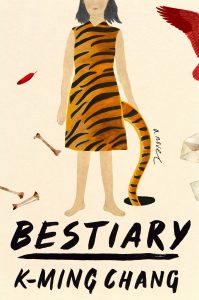
K-Ming Chang, Bestiary
One World, September 8
I am a sucker for novels by poets, and K-Ming Chang’s debut, which combines myth with family history, promises to reward my fixation. Young queer love, family secrets, and a girl who grows a tiger tale, all told by a language obsessive? Extremely sold. –Jessie Gaynor, Lit Hub Social Media Editor

Tatiana Ryckman, The Ancestry of Objects
Deep Vellum Press, September 8
A dizzying story of girl meets boy, meets her all-encompassing desire, meets her equally fervent wish to end her life, meets the mysteries and ghosts that have circled her whole life, meets . . . so much more. The girl in question, an unnamed narrator, has wells of need and want at her core, for which the boy, David, is an unwitting receptacle. Told in fragments, and memories, and various voices, The Ancestry of Objects whirls the reader through the narrator’s many selves as our she attempts to reckon with the voids that we all contend with. –Julia Hass, Lit Hub Editorial Fellow
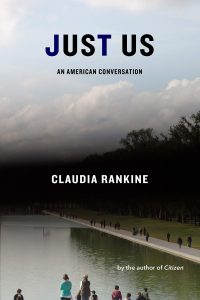
Claudia Rankine, Just Us
Graywolf, September 8
Like her beloved Citizen, Rankine’s latest is a riveting combination of poetry, essay, and image, incorporating both narrative and data, which here includes pie charts and excerpts from Twitter, snatches of conversation, art, as Rankine fact-checks herself, or proffers extratextual examples or context, on nearly every page. Rankine’s work is always essential, and this volume is no different: it is a rigorous examination of whiteness—but in particular, of the way white people understand (or do not understand) their own whiteness, or whiteness itself. Fans of Rankine will recognize the book’s opening, but here she goes much deeper and inserts much more of herself into the equation, and the result is disturbing, illuminating, and powerful. –Emily Temple, Managing Editor

Susie Yang, White Ivy
Simon & Schuster, September 8
White Ivy begins, “Ivy Lin was a thief but you would never know it to look at her.” What follows is a wonderfully plotted, page-turning novel about the lengths we will go to to get the life we want. Inside Susie Yang’s debut, you will find: a Chinese immigrant family, the lure of the alleged American Dream, something that feels like fate, the ghosts of people you used to know, a love triangle, and (bonus!) a kleptomaniac grandmother. –Katie Yee, Book Marks Associate Editor
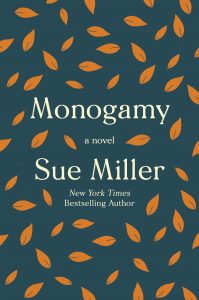
Sue Miller, Monogamy
Harper, September 8
A story of marriage, heartbreak, grief, and the question of fidelity: what more could we want? Graham and Annie were married for 30 years before Graham died suddenly; Annie had never once questioned whether he was faithful, until, after his death, she discovered evidence of his affairs. She is broken by the news, but also by the loss of her husband, and is left revolving around the questions of, how can you forgive someone who is no longer here? And can you ever really know anyone at all? –Julia Hass, Lit Hub Editorial Fellow
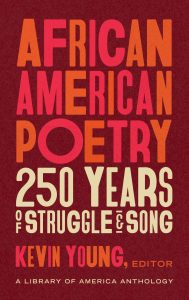
Kevin Young, ed., African American Poetry: 250 Years of Struggle and Song
Library of America, September 8
We are living through a new heyday of African-American poetry, and this enormous book is a milestone of what actually has been an ongoing moment. Beginning in the 1780s with the great Phillis Wheatley, Young assembles three centuries of verse into discrete movements and periods, from bondage to what is being called “a furious flowering,” the explosion of the last ten years. Publication of the book ought to be an event.
No is better suited to the task of arranging than Young As a poet, scholar, director of the Schomburg center, anthologist and New Yorker editor, he hears and recognizes more sounds within poetry than just about any poetry person at work today. Breaking out Paul Laurence Dunbar and at James Weldon Johnson into their own period (with other poets), rather than seeing them primarily as precursors to the Harlem Renaissance, for example, he allows us to see their work as more than just a bridge. Furthermore, grouping Bob Kaufman and Gwendolyn Brooks in a period of their own—1937 to 1959—he shines a spotlight on that period’s class struggles.
Throughout, Young judiciously edits and resurrects, bringing back poets like Margaret Walker, the first Black poet to win the Yale Younger Poets Prize, and Shirley Anne Williams, not forgotten but somehow not fully appreciated, back into a little more light. A book this big allows all the vectors creating African American poetry to co-exist—from songs of slavery, to jazz to hip hop and modernism and collective work, none of them definitive, all deepening. What a glorious collection it is—full of voices of compassion and longing and celebration and mourning, it is a companion, a teaching touchtone, a mansion with many doors. –John Freeman, Executive Editor
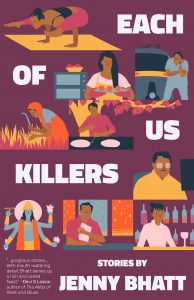
Jenny Bhatt, Each of Us Killers
7.13 Books, September 8
I’ve been waiting for Jenny Bhatt’s debut ever since she put together this excellent list of debut works of fiction by women over 40 for us in 2018; her collection, whose stories span the American midwest, India, and England, is already gilded with praise—Chaya Bhuvaneswar writes that this “collection works brilliantly both as an evocative amalgam of insightful observations about race, class, gender, aspirations, as well as on the sentence level,” which sounds like exactly what I want to read right now. –Emily Temple, Managing Editor
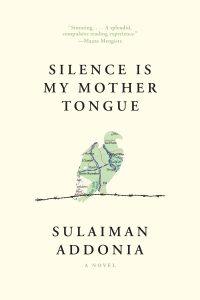
Sulaiman Addonia, Silence Is My Mother Tongue
Graywolf, September 8
In an East African refugee camp, teenage Saba and her brother Hagos—who refuses to speak—pass their days with others like them, forced to flee, fearful for their safety, and desperate to assemble some kind of stable realm. It wasn’t long ago Saba was simply a girl at school in a world which could be predicted. Here she takes on the role of protector and interpreter for her mute brother. Addonia is a poetic and compressed writer, he keeps the narrative eye focused close on the world Saba must navigate. Once, not long ago, Adonis was a similar position—having fled Eritrea to a refugee camp in Sudan, only to have to move again and go to school in Saudi Arabia. He came to England with his brother as a young man, where he learned English, the language in which he wrote this book. No he lives in Belgium and teaches writing to refugees in the position he was once in. Even more remarkable than Addonia’s journey is how he manages to put us inside Saba and her dilemma, rather than have us gaping at it from the outside—where it might be possible to turn away. –John Freeman, Executive Editor
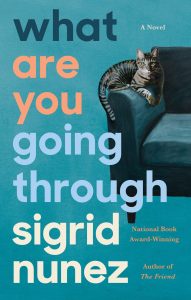
Sigrid Nunez, What Are You Going Through
Riverhead, September 8
From the National Book Award-winning author of The Friend comes a new novel about human connection and companionship. (Yes, if you are craving these things from wherever you are quarantined, take note!) The story begins with a recounting of various interactions, both minute and monumental (with an Airbnb host, with a childhood friend dying of cancer). Sigrid Nunez orchestrates a beautiful chorus of humanness here, and the novel asks a question we might all be thinking in these distant times: What does it mean to really be there for someone in times of hardship? –Katie Yee, Book Marks Associate Editor
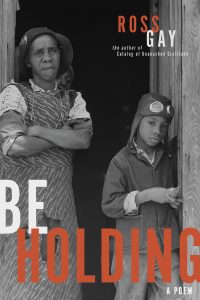
Ross Gay, Be Holding: A Poem
University of Pittsburgh Press, September 8
Thanks to “The Last Dance,” Michael Jordan’s grace and poise are back to the front of mental highlight reels. But before him there was Dr. J, Julius Erving, whose airborne style of play and end-to-end wizardry made the sweat and squeak of a game played on hardwood seem like poetry. In his first collection since the National Book Critics Circle winning “Catalog of Unabashed Gratitude,” Ross Gay returns with a book length ode to the great Doctor—as he soars through the air in one of his greatest moves.
You do not need to have touched a basketball to appreciate how this book sings the man’s praises, how it describes the free movement of a body in space—“have you ever decided anything / in the air?” he asks, replaying Irving’s famous baseline scoop, part Frank Lloyd Wright, part of Michelangelo—the way he made of improvisation an art.
Pausing, beginning again, rewinding, Gay makes his own virtuosic loops from these three seconds, outward from that scoop, that game, the players there, to what was unfolding in America and still is, a country of people falling with no net. He asks himself, “I wonder if, no, / I wonder how, / I, too, am a docent / in the museum of black pain.” Gay watches the Doctor again ducking his head to avoid smashing it on the backboard, “the daily evasion of which is, / as you know, / a version of genius.” He remembers playing himself, body to body, “as though ascending a great staircase / made of air with joy.” This poem asserts its right to remember a moment and a person can be caught up in all these things, all at once, floating. –John Freeman, Executive Editor
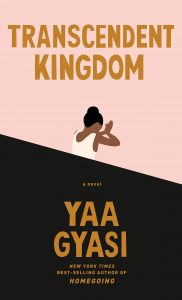
Yaa Gyasi, Transcendent Kingdom
Knopf, September 8
The follow-up to Gyasi’s PEN/Hemingway Award-winning 2016 debut novel Homegoing is a psychologically complex portrait of a Ghanaian family in Alabama, focusing on Gifty, the lone member born in the States who, as part of her doctorate in neuroscience at Stanford, is attempting to see if she can alter the neural pathways leading to addiction and depression. Gifty’s struggles to reconcile her scientific pursuits (motivated by her brother’s death from a heroin overdose) with her family’s evangelical background. Gyasi’s debut was a marvel and this new work looks to be every bit as searing and emotionally resonant as its predecessor. –Dan Sheehan, Book Marks Editor

André Leon Talley, The Chiffon Trenches: A Memoir
Ballantine, September 8
I am, in equal measure, fascinated and terrified by fashion people, so a juicy memoir about their bad behavior is exactly what I want to read. Add to that the fact that Andre Leon Talley, consummate fashion insider, has not been shy about his Anna Wintour criticism lately, and you have my undivided attention. –Jessie Gaynor, Lit Hub Social Media Editor
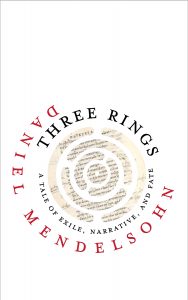
Daniel Mendelsohn, Three Rings: A Tale of Exile, Narrative and Fate
University of Virginia Press, September 8
This essay ought to become a beloved handbook for writing Annie Dillard’s Holy the Firm was in its time. Like Dillard, who was staring at infinity and the endlessness of human suffering, Mendelsohn, too, struggles with how to frame and scale stories in a world which chucks them into the oven of a hyper-active news cycle like coal. He comes up with a very old strategy, the ring method, as defined by Homer and others, in which patterns are repeated and deepened with movement and transformation. Mendelsohn goes one step further here, however, beyond defining it and describing it. He then performs it with a piece of fabulist writing which is a thrilling new mode in a career made of dramatic shifts in register, from fire breathing reviewer to meditative memoirist on desire (The Elusive Embrace, to mournful Sebaldian archivist in the face of the Holocaust (The Lost). In his last, book, The Odyssey, he wrote as a mensch-of-a-son giving his father one last tour through the classics “Danny” teaches at Bard. The ring structure allows him to be all things at once. The way this book feels so expansive in a space so small, you don’t even have to ask if the ring structure applies to things other than writing. –John Freeman, Executive Editor
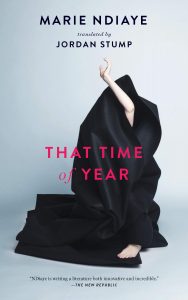
Marie Ndiaye, tr. Jordan Stump, That Time of Year
Two Lines, September 8
Marie Ndiaye’s That Time of Year has been described as a “literary horror story about power and assimilation” and praised by Laura van den Berg as a “shape-shifting masterpiece.” I’m sold. But in case you need a little more: Herman’s family is missing. They were on vacation, and now it is time to return home. Their normal life in the city is calling. The weather is turning. Despite his desperate attempts to find his wife and kids, Herman keeps hitting dead ends. And something seems to have shifted in the local community, something more sinister is taking root in their hospitality. Beautifully translated by Jordan Stump, That Time of Year is a gripping downward spiral into the uncanny. –Katie Yee, Book Marks Associate Editor
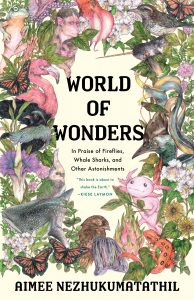
Aimee Nezhukumatathil, World of Wonders: In Praise of Fireflies, Whale Sharks and Other Astonishments (illustrated by Fumi Nakamura)
Milkweed, September 8
As previously described: Should the wonderful David Attenborough ever retire, my hope is someone at BBC has read the work of Aimee Nezhukumatathil. What a great new naturalist of the airwaves she would make. As a poet, in books like Fishbone and Miracle Fruit, Nezhukumatathil has consistently reminded, through lucid description, that nature doesn’t need a metaphor. On its own it presents a wealth of wonder. “A snake heart can slide up and down the length of its body / when it needs to,” she writes in a poem from Oceanic, her most recent collection.
Now, in her first book of prose, Nezhukumatathil moves from water back to land, mostly, weaving a shadow memoir around catalpa plants, fireflies, saguaro and other plants, insects and animals. What a lovely book this is, gentle in its pacing, well-illustrated by Fumi Nakamura, and quietly subversive in the way he channels its gusts of joy. The child of two doctors, one from the Philippines, the other from India, as she moved around the country growing up, Nezhukumatathil was often the only brown girl in her classes.
World of Wonders doesn’t just gently reverse the gaze—to borrow a phrase from the novelist Aminatta Forna—applied to her, but refracts it too. “If a white girl tries to tell you what your brown skin can and cannot wear for makeup, just remember the smile of an axolotl.” And thus we come to know how a walking neotenic salamander will look right back at you and grin. –John Freeman, Lit Hub Executive Editor
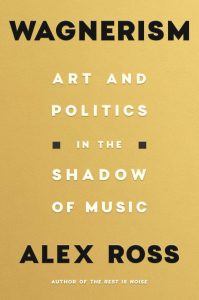
Alex Ross, Wagnerism: Art and Politics in the Shadow of Music
FSG, September 15
“Wagner’s effect on music was enormous,” writes Alex Ross in the opening of Wagnerism, his first book in over a decade, a brilliant cultural history of the German composer and his aftermath. “[B]ut it did not exceed that of Monteverdi, Bach or Beethoven. His effect on neighboring arts was, however, unprecedented, and it has not been equaled since, even in the popular arena.” Patiently, with a range which is breath-taking, and never bullied by the wonders of pop culture’s omnivorousness, this sumptuous book charts that ripples of Wagner’s influence—all those over-the-top tales of Gods, the psychosexual dramas, the booming doom complexes—into the work of poets (William Butler Yeats), novelists (Thomas Mann), artists (the Pre-Raphealites), and of course filmmakers (like Hitchcock and Francis Ford Coppola of “Apocalypse Now”). Even Bugs Bunny makes an appearance in this companionable book, which arrives just in time for what some days feels like the end of the world. –John Freeman, Executive Editor
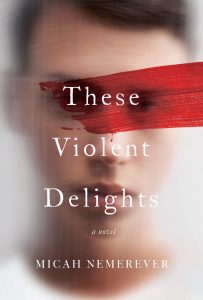
Micah Nemerever, These Violent Delights
Harper, September 15
This debut sounds extremely my shit: pitched as The Secret History meets Call Me By Your Name, it follows two college freshmen—Paul and Julian—who meet and soon develop a deep, dangerous obsession with one another. I don’t know what happens next, but I do know what happens in the second part of the line from Romeo and Juliet quoted in the title: “These violent delights have violent ends . . . ” I’m here for it. –Emily Temple, Managing Editor

David Nasaw, The Last Million: Europe’s Displaced Persons from World War to Cold War
Penguin Press, September 15
The best single book on Europe after 1945 is Tony Judt’s magisterial Postwar, but even in 880 pages, it didn’t have the room to address one of its key fact: that there were “some forty million in transit, moving within countries, between countries and into Europe from overseas” in the wake of the World War II. Here’s the book that does, and Nasaw—who won a Pulitzer for his biography of William Randolph Hearst—makes an important decision from the start. He begins in 1944, when millions were still in refugee camps, classified as POW, or were still being liberated from the Holocaust.
Beginning here allows him to study the catastrophic effect of some serious errors by the U.S. and others. In the melee of grappling with this multinational population, the Allied forces—through overwork, anti-Semitism, or just sheer lack of knowledge—allowed scores of Nazi sympathizers into the US. A juddering, contradictory policy on refugees also meant some people didn’t leave this purgatory until the 1950s. So many films of this period fade to tones of victory and congratulation—this book reminds that for some, the pain had just begun. –John Freeman, Executive Editor

Alyssa Cole, When No One Is Watching
William Morrow, September 15
After a month of being too stressed out by the pandemic to finish anything, this is the book that got me going again and restored my faith in the power of books. It’s very Jordan Peele influenced, and it’s about a woman whose block is in the throes of gentrification—and her neighbors are mysteriously disappearing. The houses on the block are being sold at obscene prices, partially because the city is funding a new opioid recovery center in the old neighborhood hospital, shuttered for decades, and that adds insult to injury since the neighborhood didn’t get much help from the medical community during the crack cocaine epidemic. I can’t give too much away, but it was AWESOME, and I literally cheered at the end. –Molly Odintz, CrimeReads Senior Editor
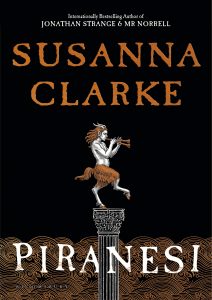
Susanna Clarke, Piranesi
Bloomsbury, September 15
I’ve been anticipating this one since it was announced last September: 15 years ago, Susanna Clarke published her genre-bending debut, Jonathan Strange and Mr. Norrell, which has now become a modern classic. Her long awaited sophomore novel, Piranesi is set in a new kind of dreamlike labyrinth: a strange, irreal house with infinite rooms and infinite statues and an ocean trapped within; the eponymous Piranesi lives there with The Other, and the two research A Great and Secret Knowledge. But what is beyond the infinite house? The wait is almost over. –Emily Temple, Managing Editor

Vigdis Hjorth, Long Live the Post Horn!
Verso, September 15
Before she became famous for taking Norwegian autofiction deeper into spaces formerly clouded by shame, Vigdis Hjorth was already beloved for her paper-cut wit and ability to make a story from small absurdities. Long Live the Post Horn! first published in 2012, is a classic example of this writing. The book follows a 35-year-old woman named Elinor who is having a crisis of existence, her diary so boring she can barely read it. When a coworker commits suicide, Elinor is thrust into a more active role at work on ginning up public support for privatization of postal services. What should be mind-numbing work turns into a new flowering, when she discovers the story of a long lost letter and the postal worker who wouldn’t give up on delivering it. Wrenching tenderness from the mouth of irony, Hjorth proves how major effects don’t always come from the heavy-foot pedals. –John Freeman, Executive Editor
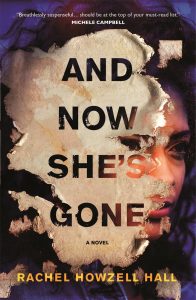
Rachel Howzell Hall, And Now She’s Gone
Forge, September 22
Rachel Howzell Hall goes into new territory with her upcoming mystery, where we meet the shy new girl at a private detective agency as she gets her first case—track down a stolen dog and return him to his owner, a pompous doctor. Problem is, the dog was stolen by the doctor’s ex-girlfriend who’s surprisingly good at vanishing, and as details of her case surface, Hall’s protagonist finds herself immersed in a wave of traumatic memories and new dangers that threaten to upset the careful new life she’s built for herself. And Now She’s Gone brings Hall’s trademark wit and slow-build suspense to the table once more, and it kept me turning the pages well into the night. –Molly Odintz, CrimeReads Senior Editor

Christina Lamb, Our Bodies, Their Battlefield: What War Does to Women
Scribner, September 22
Civilian fatalities in wartime have climbed from 5 per cent at the turn of the century to more than 90 per cent in the wars of the 1990s and today. “Armed conflict kills and maims more children than soldiers,” noted Graça Machel, during her time as the UN Secretary-General’s Expert on the Impact of Armed Conflict on Children. And women too suffer disproportionately as victims in war. The world now finds itself a place in which, perversely, the safest people in a war zone are likely to be the combatants. Christina Lamb’s Our Bodies, Their Battlefields: What War Does to Women, gives the phrase ‘women and children first’ a chilling, new meaning as she catalogues the violence done to women and girls in wars the world over. –Aminatta Forna, Lit Hub contributor
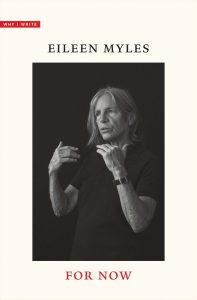
Eileen Myles, For Now
Yale University Press, September 22
Eileen Myles is back, thank god, and better than ever with their new writing-centered memoir, For Now (Why I Write). Yes, theoretically all memoirs by writers are inarguably pretty writing-centered, but this one tackles the big question, of why. This memoir, of course, wouldn’t be a Myles memoir without raucous vignettes of their young New York days, starting out as a writer, and stories of friends, lovers, and idols, because, after all, writing is about life, honoring it and being of it. This is something Myles has always managed to do: not only live life to the fullest, but also to go on and tell us all about it. –Julia Hass, Lit Hub Editorial Fellow

Susan Taubes, Divorcing
NYRB, September 22
Susan Sontag found the body of her friend, Susan Taubes, after Taubes committed suicide in 1969, soon after the publication of her sole novel, Divorcing. Critics at the time (mostly, snobbish men) panned the book, which tells of Sophie Blind, a woman who is getting a divorce from her husband and reflecting upon the many other split seams that defined her life, and the lives of her parents. –Aaron Robertson, Assistant Editor
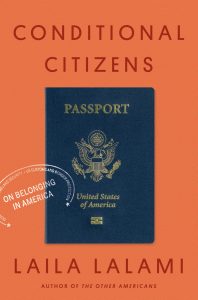
Laila Lalami, Conditional Citizens: On Belonging in America
Pantheon, September 22
Laila Lalami’s exploration of belonging in America follows her experience as an immigrant from Morocco and her path to becoming a citizen, revealing much about the country’s troubled relationship with people whom it simultaneously values and pushes away. Her story is deeply personal and an essential testimony. –Corinne Segal, Senior Editor

Noam Chomsky and Robert Pollin, Climate Crisis and the Global Green Deal
Verso, September 22
One of the overarching fallacies behind resistance to a Green New Deal is that it’d wreck the economy. Not only is this morally bankrupt, Noam Chomsky points out in this brisk and lucid new book, cowritten with economist Robert Pollin, it’s also wrong. Stupidly wrong. In a little under two-hundred pages, they present a portrait of where the world is heading, and the necessity for retooling for a globe run by new energy sources, better habits and practices, and investment in industries that repair the earth rather than continue to treat it like a carcass to be picked at. –John Freeman, Executive Editor

Smith Henderson and Jon Marc Smith, Make Them Cry
Ecco, September 22
Henderson’s first novel, Fourth of July Creek, was one of the most powerful debuts in recent memory. His follow-up, co-authored with Jon Marc Smith, is sure to have thriller readers feeling very encouraged, as he turns to a high-octane world of drug violence, dangerous borders, and government conspiracies. Make Them Cry is reminiscent of the best 1970s thrillers, but its secrets are of the moment, as a former prosecutor turned DEA agent gets wind of a cartel secret and heads to Mexico City to investigate. This is chiseled, adrenaline-fueled thriller writing at the highest level. –Dwyer Murphy, CrimeReads Managing Editor
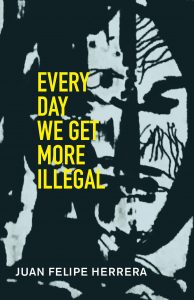
Juan Felipe Herrera, Every Day We Get More Illegal: Poems
City Lights, September 22
As previously described: Syncopated by a series of song-like addresses to a firefly on a road north, this dexterous and luminous new book by former US Poet Laureate is part Basho, part protest poem. Herrera’s roving eye captures all, from moments of ephemeral calm, to the way workers work—Herrera, the son of farm workers, laments how hard it has been for high culture to even regard people like them. The migrants who travel in shadows. Here as in other books, Herrera has stripped punctuation from many of the poems, leaving his lines to blow as if a holy wind moves through them. A prolific voice for justice, Herrera continues to see the world with love and sympathy, a goofy sort of humor, and a liberationist’s roving kind of care. These are warm poems for hard times. –John Freeman, Lit Hub Executive Editor
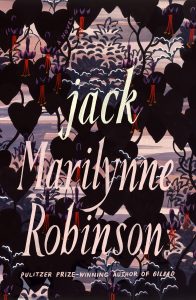
Marilynne Robinson, Jack
FSG, September 29
She’s back! Much beloved Pulitzer Prize winner Marilynne Robinson is back, to guide us once more into the world of Gilead, Iowa. This new novel follows the son of a Presbytarian minister and his relationship with a high school teacher, also the child of a preacher. Jack is a love story, but it is also a story of power and guilt (like I said, a love story) and an interrogation of race and the hypocrisy in America. If you haven’t read the other novels in the series (Gilead, Home, and Lila), treat yourself to these contemporary classics. You have until the end of September to catch up. –Katie Yee, Book Marks Associate Editor
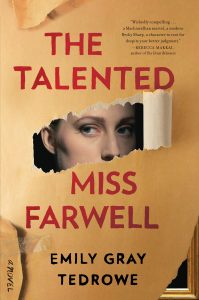
Emily Gray Tedrowe, The Talented Miss Farwell
Custom House, September 29
Two things I love: female con artists, and novels about the art world. This book is both, and it also comes with high praise from Rebecca Makkai, who called its titular character “a Machiavellian marvel, a modern Becky Sharp, a character to root for despite your better judgment.” I would like to read about her, please. –Emily Temple, Managing Editor

Ruth Stone, Bianca Stone, ed., The Essential Ruth Stone
Copper Canyon, September 29
Like her near contemporaries, Stanley Kunitz and Jack Gilbert, Ruth Stone’s rough honesty continues to seduce and haunt nearly a decade after her death. Over fifty years her poems steadily emerged with the grapple marks of wild things wrestled into form. It wasn’t always clear whether that wildness was life itself, or language. But an aesthetic appeared in Stone’s work which her granddaughter, the fabulous poet and visual artist Bianca Stone, has honed and enlarged in this terrific selection. Stone was a hilarious poet, a great chronicler of resistance to the thieves and pigs of state, and a mystic when she wanted to be. So much is on display here this is the kind of book that can kick off a renaissance, if you let it inside. If you’re hungry for poems which land square on the chest, full of hurt and feeling, but impatient with mere sentiment—look no further. –John Freeman, Executive Editor
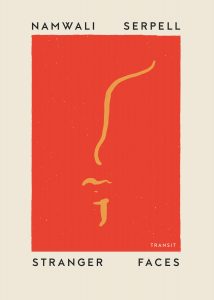
Namwali Serpell, Stranger Faces
Transit Books, September 29
Transit Books recently started a very cool project: the Undelivered Lectures Series. The Old Drift author Namwali Serpell has written the second one. Stranger Faces explores the idea of beauty, it interrogates the notion that the face is the way we understand humanity, and it forces us to confront what happens when we encounter something more unrecognizable. From this unique vantage point, these essays touch on technology, race, disability, death. You’ll never look at a face the same way again. –Katie Yee, Book Marks Associate Editor
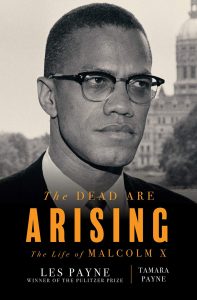
Les Payne with Tamara Payne, The Dead Are Rising: The Life of Malcolm X
Liveright, September 29
Thirty years ago, Les Payne—the Pulitzer Prize-winning former editor of Newsday, the same newspaper which created Robert Caro—set out to interview anyone who crossed paths with Malcolm X. Payne died two years ago, before he could complete his decades long biography of the Nebraska-born civil rights leader, but with the help of his daughter, Tamara Payne, we now have an indispensable portrait of Malcolm X’s life, from his Depression era childhood to his terrible death too early. Probing and well paced, full of new glimpses of the man becoming the man we still don’t quite know today, The Dead Are Rising does not read like a book unfinished, but rather a deliberately and beautifully written portrait. One sure to stand next to Manning Marble’s biography of ten years ago. –John Freeman, Lit Hub Executive Editor
OCTOBER
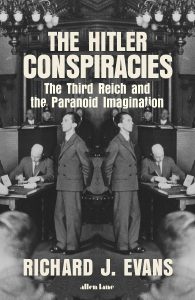
Richard J. Evans, The Hitler Conspiracies
Oxford University Press, October 1
In a time when every other macro-aggression of the Trump administration is being compared to the Reichstag fire, this mesmerizing new book by leading Weimar historian Richard J. Evans ought to be key reading. Moving through Hitler’s life, he exposes the way certain events pulled away from the facts and became more than myths, but conspiracies. –John Freeman, Executive Editor
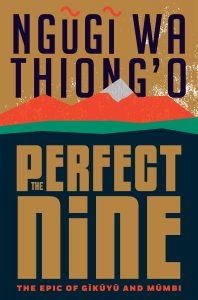
Ngugi Wa Thiong’o, The Perfect Nine
New Press, October 6
In his lifetime, Ngugi Wa Thiong’o has shucked off a colonial name and language, reinvented drama as a form, chronicled the rise of independence in his young nation, suffered in prison as a result—where he wrote a novel on toilet paper—and resurrected his pre-colonial language. All that before counting in the fact that he has carved open a space for African writing through which dozens of our most talented young writers emerged. So finding a new form then is something he does in between tea and dinner. The Perfect Nine shows just how effortlessly he can switch from his conventional modes like autobiography—such as in his recent series of memoirs of a public life lived—into something huge, old and new at the same, such as this epic.
Unfolding in wry and lyrical verse, The Perfect Nine tells a Homeric odyssey of the creation of the entire Gikūyū people—a creationist myth, an adventure tale, and a family story, wherein the wives do not simply wait at home. Gikūyū and Mumbi have been guided to Africa by the Great Creator, and settle in Nyagathanga, where they marvel at the rich valley, its stately hills, and the possible future it holds for their ten daughters (one remains un-counted for reasons which are protective). Their nine goddess-like daughters are ready to make lives of their own, and word has spread of their feats, so 99 suitors begin to come. Then the fireworks begin. –John Freeman, Executive Editor
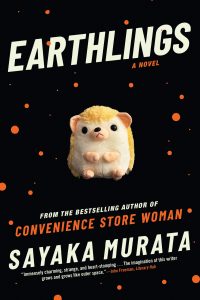
Sayaka Murata, tr. Ginny Tapley Takemori, Earthlings
Grove, October 6
If you want to return to that time in your youth when everything is enchanted with otherworldly meaning, you should pick up Sayaka Murata’s Earthlings. Gorgeously translated by Ginny Tapley Takemori, this novel tells the story of Natsuki, a young girl and social outcast with a big heart. (She’s the scapegoat, the black sheep in her family, and the gut-wrenching thing is, she knows it: “The phrase ‘close-knit family,’ which I’d come across in a school library book and had stuck in my mind, always came back to me when I saw my parents and sister together.”) Her best friend is a toy hedgehog named Piyyut who discloses to her that he has come into her life to help her save her planet. Her saving grace—the thing she waits for all year—is the big family gathering hosted at her grandmother’s house on the mountain. Here, she gets to see her cousin, who is also an alien. (Read: also an outcast.) This is a story about the way we cope with things beyond our comprehension. The heartbreaking thing is their earnestness, the way they see the world versus the things the reader can see happening under the surface. But it is also a joy to see the world through Natsuki’s eyes. Sayaka Murata (author of the mesmerizing Convenience Store Woman) has a special gift for stripping away familiarity from our world (as an adult, Natsuki views her society as a “baby factory” and her city as “nests packed closely together”). Earthlings is a gem, a glimpse at our world not quite reflected but refracted back at us in the most interesting light. –Katie Yee, Book Marks Associate Editor
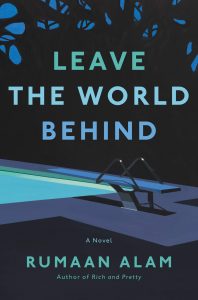
Rumaan Alam, Leave the World Behind
Ecco, October 6
I’m currently in the middle of Rumaan Alam’s novel about two families—one white, one Black, and strangers to each other—stuck in a vacation home together amid (yes, amid) an unspecified disaster, so forgive me if I keep this brief. I’m absolutely gripped and I need to get back to it. I’ll say that it’s a beautifully paced page-turner that never sacrifices prose for plot, or vice versa, and that it’s both ominous and poignant, both funny and genuinely frightening, and it pulls me back even now. –Jessie Gaynor, Lit Hub Social Media Editor
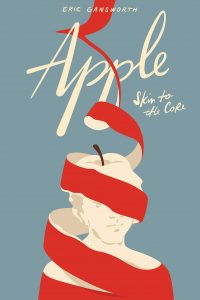
Eric Gansworth, Apple (Skin to the Core)
Levine Querido, October 6
Eric Gansworth’s memoir in verse is easily one of the best books to be published in 2020. The kind of book bound to save lives. It’s a coming of age yarn, a coming out story, for a kid growing up Native, and an elegy all in one, told in gently unfolding verse cliffs that shrug and ease their way into some of the most beautiful lines Gansworth has ever written. Although “Apple (Skin to the Core) is published toward young adults, it recognizes that there’s an untold story here—for many who carried a similar silence into adulthood. “A primary lesson we are taught, even in our greatest sadness,” Gansworth writes in the section on naming: “we must clear our eyes, our ears, our throats to do our parts in carrying on the stories for the time we will no longer be able to pass them on, leaving silent images behind, mere mysteries to others. This is our foundation.” He then concludes. “I tell you here what I have seen, what I have heard, what I have lived. I choose not to be silent, and you can choose to open your ears, and eyes, or close them.” How beautifully this book keeps them open. –John Freeman, Executive Editor

Phil Klay, Missionaries
Penguin Press, October 6
The hotly-anticipated follow-up to National Book Award-winner and Iraq War veteran Phil Klay’s 2015 short story collection, Redeployment, this debut novel looks to be another fascinating window into the murky nature of modern U.S. warfare, this time set in Columbia. Examining “the globalization of violence through the interlocking stories of four characters and the conflicts that define their lives,” Missionaries focuses on the intertwining journeys of a U.S. Army Special Forces medic, a foreign correspondent, a Colombian officer, and lieutenant in a local militia. Expect another clear-eyed and harrowing glimpse into America’s Forever Wars. –Dan Sheehan, Book Marks Editor
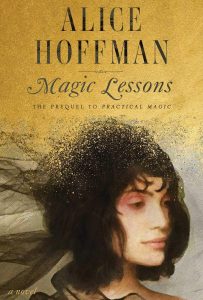
Alice Hoffman, Magic Lessons
Simon & Schuster, October 6
Anyone who knows me knows how much I love Practical Magic. I spend a lot of my time going over the plot in great detail to friends over midnight margaritas. (To recap: the original story follows sister witches who are ostracized by their sleepy town and who are haunted by a family curse that condemns any man who dares love an Owens woman to die.) Unsurprisingly, I’m particularly thrilled that Alice Hoffman has written a prequel to the book that started it all, a quarter of a century later. Magic Lessons tells us the story of Maria Owens, the woman accused of witchcraft in Salem and the matriarch of the Owens family line. The curse (and the cult classic) begins with her, and we finally get to hear her story. –Katie Yee, Book Marks Associate Editor
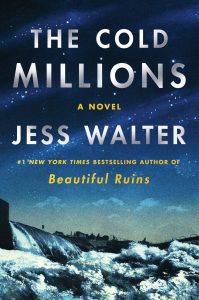
Jess Walter, The Cold Millions
Harper, October 6
It’s been eight years since Walter’s bestselling, sun-soaked Beautiful Ruins, and he doesn’t seem to have gotten any less cinematic in that time: his new novel features two train-hopping brothers, a cougar, a vaudeville singer named Ursula the Great, a mining magnate, and . . . labor leader and activist Elizabeth Gurley Flynn. Okay, I’m interested! –Emily Temple, Managing Editor
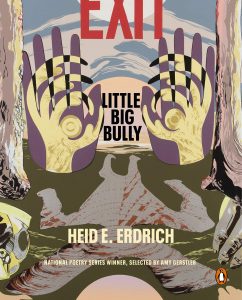
Heid E. Erdrich, Little Big Bully
Penguin, October 6
Erdrich’s vibrant sixth collection begins with an enormous question it then tries in 90 or so ways to answer. “How,” the poems Catherine Wheel of an opener, ends its explosion of riffs on the word how with “How did we come to this.” Little Big Bully expands from this moment, cycling into private moments, public grief, purposefully erased history and Native politics. She finds ways to still chevron the mind sky with wonder, all while cutting lacunae into the poems, spaces of not addressing, or at least addressing what she cannot or will not explain. “[C]reepy the way they want in,” she writes in one poem, “they want in us—inside us/want to dress in our dead/to wear our past and skins/dispossess us again.” The improvisational torque of Little Big Bully means the book is always moving, into imagined story cycles, love poems, riffs, prose poems so vital it feels like they’ve burst free of punctuation, rather than eschewed it for style. This is a major collection by a writer who deserves an audience a big as the light she’s throwing off. –John Freeman, Executive Editor
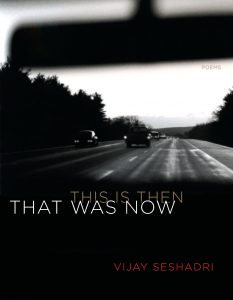
Vijay Seshadri, That Was Now, This Is Then: Poems
Graywolf, October 6
Who can say where and when we are now? “Now is then, / now happened then, and then again,” writes Vijay Seshadri in his intellectually nimble new collection, which reads like a warning to readers that in ways real and emotional. This cycle of nonsense he imagines “is going to happen again, and then again.” So many of the poems here chart the bewilderment of our epistemological unraveling. Yes, we live in a world of robocalls and floating antecedents, of vagueness and drift.
But in the middle part of the book edges surprisingly and powerfully into elegy. For once in a book which carries a loss we are caught nearly as off-guard as the speaker appears to have been. “It is what it is,” Sesadri writes was his father’s favorite phrase. Can one live in timelessness of such an aftermath? Are we all in a cycle of repetition? Out of such a repeat cycle comes boredom and grief; but also a tedium that can lead to violence.
In its latter poems, Sesahdri’s collection edges toward rhetoric of contemporary tribalism, the way it builds towards definitions of againstness. In “The Idol of the Tribe,” he approaches the yoked rhyming fury of James Fenton.
I look at you with my vexed eye.
I look at you with my hostile eye.
I look at you with my hostile and vexed eye.
My hostile, vexed eye is a wrench.
My vexed eye is a socket wrench.
My vexed and hostile socket-wrench eye twists
the bolt that hinges your mandible free
from its frozen grooves.
You scream, but we go on turning,
I and my eye. I know what I’m into.
I know what I’ve been put here for.
Seshadri’s syntactical dexterity, the sheer variety of his tonal registers means he has made a book that refuses handling; it will not be used as a weapon. In fact it feels designed not to be, all the parts which could allow you to swing it are missing. What remains is smooth and unique and self-contained, flashes made inside and shared here discreetly, briefly—like something put down “by the light of a taper, deep inside yourself, at your walnut secretary.” And yet it has such power and unease, you may leave it feeling less alone. –John Freeman, Lit Hub Executive Editor
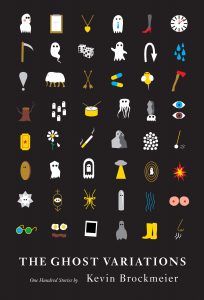
Kevin Brockmeier, The Ghost Variations
Pantheon, October 6
Kevin Brockmeier’s lyrical science fiction is always a welcome retreat from the present, so I can’t wait to read his new collection of 100 miniature ghost stories. Small slices of literary haunting seem just right for the moment. –Jessie Gaynor, Lit Hub Social Media Editor
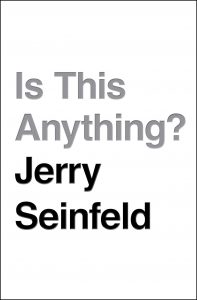
Jerry Seinfeld, Is This Anything?
Simon & Schuster, October 6
For this book, Seinfeld has selected his favorite comedic material from the last twenty-five years—so I think it’s a pretty fair bet that yes, it’s something. –Emily Temple, Managing Editor
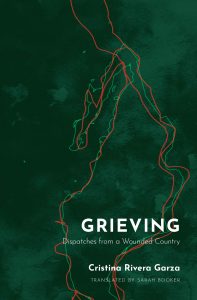
Cristina Rivera Garza, Grieving
Feminist Press, October 6
Cristina Rivera Garza’s Grieving is about the systemic violence enacted along the US–Mexico border. What happens in between these two places? How can we even attempt to make sense of the corruption? How can we begin to make it better? It is fitting that the structure of this collection is a beautiful hybrid of things: journalism, personal essay, political analysis, horror theory—yes, horror theory! Cristina Rivera Garza is particularly adept at weaving together these things, at examining the atrocities inflicted on her country under different lights. I will leave you with this line: “Writing as we grieve, grieving as we write: a practice able to create refuge from the open.” –Katie Yee, Book Marks Associate Editor
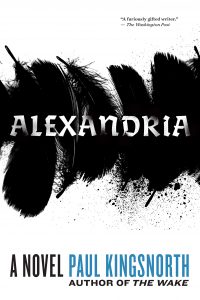
Paul Kingsnorth, Alexandria
Graywolf, October 6
If you’ve never heard of Paul Kingsnorth (Beast, The Wake), you really should look him up. He’s quite a character. The novelist, poet, and environmentalist was once the deputy editor of The Ecologist, before he retired from journalism to set up The Dark Mountain Project, an off-the-grid writers’ and artists’ movement “designed to question the stories our culture is telling itself in a time of ecological and social unravelling.” Set over one thousand years from now, on the far side of an apocalypse, in what was once the eastern part of England, Alexandria is about a small religious community of survivors who find themselves stalked by a mysterious force. –Dan Sheehan, Book Marks Editor

Brian Selfon, The Nightworkers
MCD, October 6
I just finished reading The Nightworkers by Brian Selfon and thought that it was absolutely brilliant. Uncle Shecky runs a money-laundering business with his artistic nephew Henry, and his bookloving niece Kerasha, who has just gotten out of a six-year stint in prison for thieving, has moved into the family home. The patchwork family may be criminals, but they sit down every night for a home-cooked dinner. Henry brings his friend Emil in as a money-runner, but when Emil goes missing along with a $250,000 drop, and Kerasha notices that their Bushwick apartment is under surveillance, Shecky’s carefully wrought life starts to fall apart. Each character is complex and beautifully drawn, and the ending was genuinely surprising. There’s art, theft, tight family bonds, and intricate plotting—it’s really got everything. Also it takes place in my neighborhood, and one of the characters goes to the farmer’s market that I always sleep through! –Molly Odintz, CrimeReads Senior Editor
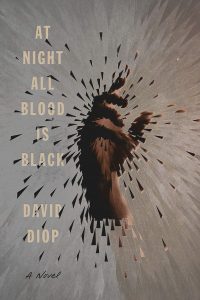
David Diop, tr. Anna Moschovakis, At Night All Blood is Black
FSG, October 6
Diop’s English-language debut, which won the Prix Goncourt des Lycéens, is a historical novel about a Senegalese man fighting with the French during WWI, who, disturbed by his own ability to put a dying friend out of his misery, begins a strange siege on the German forces: sneaking across enemy lines, and coming back with an enemy’s hand. Viet Thanh Nguyen called it “an unrelenting take on war, race, masculinity, and colonialism. Most of all, Diop’s short, sharp, and serrated novel is a visceral dramatization of how our humanity and inhumanity are forever intertwined.” Also, not for nothing, but I can’t take my eyes off the cover. –Emily Temple, Managing Editor

Keisha Bush, No Heaven for Good Boys
Random House, October 13
What an umbrella of protection faith offers, if you have it, or, until it’s exploited, as happens in Keisha Bush’s powerful, Dickensian debut novel, No Heaven for Good Boys. Set in Senegal, it tells the tale of a young boy named Ibrahimah growing up in a rural village, beloved of his mother, who runs home and to the sea every day after school. After he is spotted by a well known Koranic teacher, he is sent by his family to study in what is called a Daraas in Dakar, one of the many institutions which lead back to the 11th century, when Islam came to what is now Senegal. All highly promising for a village boy, but instead of being cared for and loved the way children should be—he is sent out into the streets to beg, and worse. Although a cousin of his is there, too, this being a coming of age tale, Ibrahimah must rely on wit, luck, and the ability to weather what fate throws at him, which is a lot, to survive. Bush is a born storyteller, who knows how to speak in the language of the boys she brings to life. They are hungry and they want love—the latter being the word most often used in this devastating, drawn from real events, story. –John Freeman, Lit Hub Executive Editor
Sarah Smarsh, She Come By It Natural: Dolly Parton and the Women Who Live Her Songs
Scribner, October 13
I had a lot of driving to do last year and was kept wonderful company in my beat-up 2006 Ford Ranger by Sarah Smarsh reading her terrific memoir Heartland. It’s not easy to blend intimate family history, contemporary reporting, and searing analyses of American class iniquity, but Smarsh pulled it off (I want to say it’s the anti-Hillbilly Elegy, but that elevates JD Vance a bit too much for my taste). Some of the hardluck scenes in Heartland read like old country songs, and it’s easy to imagine Dolly Parton pulling out that perfect detail to illustrate the defiance and tenacity demanded of so many women just to get from one paycheck to the next. Parton’s journey through the stations of American class has been long and hard, and I can think of no one better than Smarsh to map its battles, its tragedies, and its triumphs. –Jonny Diamond, Lit Hub Editor-in-Chief

Éireann Lorsung, The Century
Milkweed Editions, October 13
One question poet Éireann Lorsung asks in her new collection, The Century, is how citizens contribute to societal structures of violence and control. Slavery in the US and the Holocaust are but two of the most glaring examples. Lorsung’s collection comes at a time when studies about the roles average people played in the perpetuation of Nazism and Italian Fascism abound, to say nothing of the “minor” violences that often define interpersonal relationships across lines of color, gender, creed, and more. –Aaron Robertson, Assistant Editor
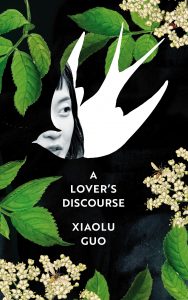
Xiaolu Guo, A Lover’s Discourse
Grove, October 13
With a nod to Roland Barthes, Xiaolu Guo shows us a different lover’s discourse: a portrait of a relationship told through conversations between a Chinese grad student and an Australian man in London. Not only is Xiaulu Guo a great novelist (she was also shortlisted for the Orange Prize for her novel, A Concise Chinese-English Dictionary for Lovers), but she is also a filmmaker. She gives her careful eye and her wonderful ear for dialogue to this love story, this exploration of what it looks, sounds, and feels like to merge two cultures and two lives together. –Katie Yee, Book Marks Associate Editor
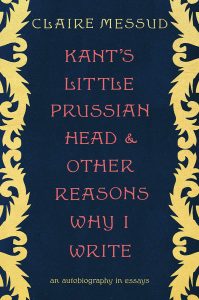
Claire Messud, Kant’s Little Prussian Head and Other Reasons Why I Write: An Autobiography Through Essays
Norton, October 13
If you’ve read Claire Messud’s warmly globe-trotting fiction, from When the World Was Steady to The Emperor’s Children, you’ve sensed the ghost trail of a life spent in motion. This fabulous collection of essays tells the tale behind this arc, from her grandparents movements into and across France, mimicking those of Camus in that time, to her own father’s long and elaborate life as a kind of living footnote of the collapse of the Ottoman Empire. Messud writes like a novelist, disappearing into the details of their lives—even, in the case of her father, when he was departing. This reflexive desire to go in rather than peer in a mirror and see herself, even when borrowing from the material of life, makes Messud a tremendously generous and inquisitive reader, as the pieces in this book on Jane Bowles, Marguerite Duras, Valeria Luiselli and Yasmine El Rashidi reveal. Would that she did more of it. Among living novelists, only Aminatta Forna and Zadie Smith write this well across the essay and the novel. –John Freeman, Lit Hub Executive Editor

John Berryman, ed. Philip Coleman and Calisa McRae, The Selected Letters of John Berryman
Harvard University Press, October 13
Editors Philip Coleman and Calista McRae have put together the first collection of poet John Berryman’s correspondence with friends, family, writers, and others in the publishing world. Berryman exchanged letters with the very best: Ezra Pound, Adrienne Rich, Robert Lowell, and many others. This is an unmissable book for those interested in the development of American literary culture after World War II. –Aaron Robertson, Assistant Editor
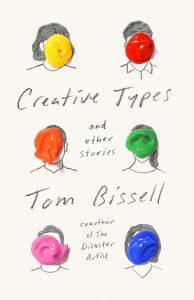
Tom Bissell, Creative Types: and Other Stories
Pantheon, October 13
Like many readers, I was introduced to Bissell through his nonfiction and longform journalism; I particularly loved Magic Hours, his book about, broadly, creativity, and of course it was Bissell who wrote the definitive work on The Room, The Disaster Artist, which was later adapted into a surprisingly good film starring James Franco. Creative Types is a short story collection, his second (of ten books!), and I have no doubt it will be just as sharp-eyed and brilliant as the rest of his writing. –Emily Temple, Managing Editor
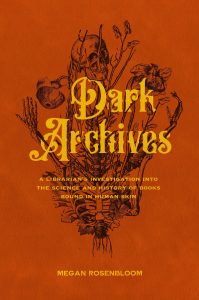
Megan Rosenbloom, Dark Archives: A Librarian’s Investigation Into the Science and History of Books Bound in Human Skin
FSG, October 20
Megan Rosenbloom’s foray into the world of books bound in human skin was one of the most surprisingly humanist and moving works of nonfiction I have ever come across. Rosenbloom is a medical ethicist librarian long affiliated with the death positivity movement, which I had never heard of until I came across this text and now desperately want to be a part of, and she leads workshops all over the country for the Order of the Good Death. Her interest in books bound in human skin was rewarded a few years ago when Harvard labs came up with a new method of scientifically determining if the binding of a book was in fact made of human skin. Megan Rosenbloom then went on an odyssey around the world to once and for all confirm the origins of those books rumored to have a binding of human origin. Results were surprising—most of the confirmed bindings were medical texts, bound by doctors in the 19th century, at a strange moment in time when artisan tanneries still operated but medical professionals had begun to be consumed by the medical distancing that allows one to bind a book in a dead patient’s skin, and still threatens the medical world today. The biggest surprise for me? That a book could include the words “What a beautiful flayed penis!” and end up as a gorgeous piece of writing on ethics and consent (with, of course, a visit to a modern tannery). –Molly Odintz, CrimeReads Senior Editor
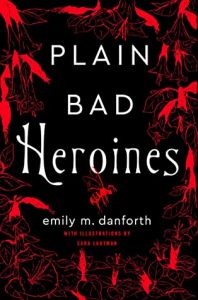
emily m. danforth, Plain Bad Heroines
William Morrow, October 20
The galley of danforth’s first novel for adults comes with a little sleeve that prevents you from opening it right away. “From books with smiling heroines, chivalrous young men, and happy endings, oh Kind Devil,” it says, “deliver me.” It also comes with a faux-replica of a 1902 edition of The Providence Daily warning of outbreaks of “MacLaneism, a condition of romantic irrationality and sometimes degeneracy acutely affecting young ladies,” spurred by the works of Mary MacLane, “untamed young authoress from Montana.” I don’t know about you, but I’m sold—and even more so by the publisher’s description of the book as “The Favorite meets The Haunting of Hill House” (I mean, yep) and the many weird and beautiful illustrations inside. This one goes right to the top of my list. –Emily Temple, Managing Editor
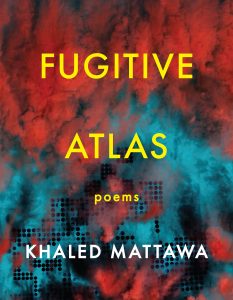
Khaled Mattawa, Fugitive Atlas
Graywolf, October 20
One day these gorgeous poems will make an opera, a play, even, surely, a film. The way they beg for adaption is not a sign of their in completeness, however, but rather how powerful a chorus of voices Mattawa has created on the page. Here in song and verse are people caught in the anguished network of migration across the Mediterranean, from the smuggled to the smugglers, from mothers to children to people left behind. Here is a landscape in which war abets climate destruction, and that unraveling expels whole families from their villages, homes, their lives.
In spite of images from such flights being available to all, the staggering apathy—or outright hostility—explains the word fugitive in their title. So many of the characters Mattawa writes on are double fugitives, from one home, and from the other they seek. Mattawa, one of the finest translators from Arabic alive today, has managed to write into English the tonal address the best poems from that language attain—such as Darwish and Mersal, both of whom Mattawa has translated. Their voices soar and cry out, they go directly to the core of the body. –John Freeman, Executive Editor
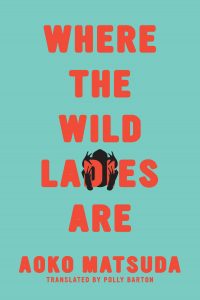
Aoko Matsuda, tr. Polly Barton, Where the Wild Ladies Are
Soft Skull, October 20
As someone more than a little obsessed with fairy tales and fables, and actually ancient lore of all kinds, I am very much anticipating this book of feminist retellings of traditional Japanese folktales from the author of The Girl Who Is Getting Married, which The Guardian calls “funny, beautiful, surreal and relatable.” –Emily Temple, Managing Editor
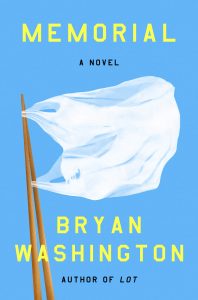 Bryan Washington, Memorial
Bryan Washington, Memorial
Riverhead, October 27
Bryan Washington’s 2019 short story collection Lot (which won the Dylan Thomas Prize and the Ernest J. Gaines Award for Literary Excellence) ended up being one of the most acclaimed debuts of recent years, and with good reason. The Houston-set collection was a brilliant, kaleidoscopic portrait of an entire community. Memorial, a novel also set in Washington’s native Houston, is a funny and joyful love story about two men—a Japanese American chef at a Mexican restaurant and a Black day care teacher—which Ocean Vuong has said “feels like a new vision for the 21st century novel.” –Dan Sheehan, Book Marks Editor

Carlo M. Cipolla, The Basic Laws of Human Stupidity
Doubleday, October 27
In which an economist explores the five laws that govern so much of our current experience, most of which you probably already know. These are the laws of human stupidity. They go like this:
1. Everyone underestimates the number of stupid individuals among us.
2. The probability that a certain person is stupid is independent of any other characteristic of that person.
3. A stupid person is a person who causes losses to another person while deriving no gain and even possibly incurring losses themselves.
4. Non-stupid people always underestimate the damaging power of stupid individuals.
5. A stupid person is the most dangerous type of person.
Help. –Emily Temple, Managing Editor
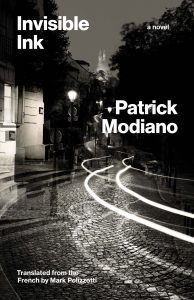
Patrick Modiano, tr. Mark Polizzotti, Invisible Ink
Yale University Press, October 27
Patrick Modiano returns to the detective form he used with such metaphysical effect in Dora Bruder with his 29th novel, the swift tale a private detective who has reopened a cold case of a missing woman, thirty years after he failed to solve it. Unfolding in the form of Jean’s diary, the written-ness of this account is part of its mode of investigation, its slight of hand. Its subject. Jean, after all, is Modiano’s given birth name, and details from a half dozen of his other works appear like faces seen from a rain-blurred taxi window. Has he written himself any nearer to the source of his quest, Jean wonders—or is it merely like all of it were penned in invisible ink, not even visible to the writer? The one searching? Once again, even when calling attention to the questions which pipe out his trademark mists, Modiano manages to make them yet again, as powerfully as ever. –John Freeman, Executive Editor

Edward Carey, The Swallowed Man
Riverhead, October 27
Edward Carey’s new novel reimagines the story of Pinocchio, and I can’t imagine a better showcase for his considerable talents—in both literary and visual arts. I look forward to a fabulous fabulist journey though one of the less-plumbed fairytales, accompanied by some breathtaking illustrations. –Jessie Gaynor, Lit Hub Social Media Editor
NOVEMBER
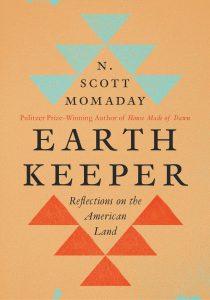
N. Scott Momaday, Earth Keeper: Reflections on American Land
Harper, November 3
N Scott Momaday—the Kiowa novelist, short story writer, essayist, and poet whose novel House Made of Dawn won the Pulitzer Prize back in 1969 and is considered the first major work of the Native American Renaissance—has devoted the majority of his life to preserving and promoting Native American stories. Now in his 87th year, Momaday’s latest work is both a poetic tribute to the sacred land of his native Southwest, and a warning to us all: protect the natural world before it is too late. –Dan Sheehan, Book Marks Editor

Yi Lei, tr. Tracy K. Smith, My Name Will Grow Wide Like a Tree
Graywolf, November 3
Yi Lei was one of the most revolutionary poets of contemporary China when she died two years ago. This rich selection of her poems, lucidly rendered into English by Pulitzer Prize-winning poet Tracy K Smith, with Chantai Bi, ought to make that a better known fact in the English-speaking world. Drawing from poems written over the last four decades, My Name Will Grow Wide Like a Tree features work of stunning beauty and precision, poems in which lines repeat to glorious effect, as in “Huangguoshu Waterfall, wherein the poem becomes like a cataract itself. “Great stones of whitewater / hammer down,” goes its open line, descriptively; “Great stone of whitewater / hammer down,” it repeats then, this time, with a new clause to follow, imploringly. When the line appears a final time, it’s a demand.
It’s an unusual poem of Yi Lei’s, many of which do not run over a stanza, let alone from one line to the next line. Instead, they move forward in brief, astonishingly clear syntactical notes. Periods abound. The steady music of this mode has its benefits. So when in “Between Strangers” has a line which unfolds, “History tells me to guard my distance,” we hold our breath, waiting for what follows—only to be heartbroken by what comes: “When I pass you on the street, and I obey.” How better to define poetry: when a revelation can be delivered in ten words or less. –John Freeman, Lit Hub Executive Editor
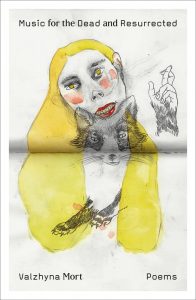
Valzhyna Mort, Music for the Dead and Resurrected
FSG, November 3
This book is no dead letter office, but rather, a phantasmagorical post office in which the departed can be addressed. Who better than Mort to do it. If there’s a poet who can pour lightning into your heart with greater precision, they’re doing a good job of hiding. Talking to ancestors, dead poets, even lovers, Mort culls a register of address often left dormant when we think the world is made of merely of the living. –John Freeman, Executive Editor

Nicole Krauss, To Be a Man: Stories
Harper, November 3
To be a fan of Nicole Krauss is to want to unspool the things that are difficult and surprising about human relationships. If you liked The History of Love or Great House, you know that her stories often start with a certain kind of serendipity, that stringing together separate lives is her specialty, that through her touch, objects tend to take on a magical quality. Her new short story collection occupies a similar space. A young woman enchants her friends with stories of her sexual conquests. A man who came back from the dead stands on the roof with his newborn grandson. A woman whose father is recently deceased discovers a stranger staying in his old Tel Aviv apartment. These are characters who mourn (dead fathers, past lovers, other selves) in unique ways, but you’ll find comfort in their relatability. –Katie Yee, Book Marks Associate Editor
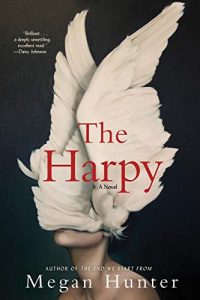
Megan Hunter, The Harpy
Grove, November 3
After Lucy discovers her husband has been sleeping with a colleague, they come to an agreement: she may hurt him three times. But make no mistake: The Harpy is not like any other story of an affair. We do not get a love story. We don’t know a lot about their marriage. We don’t even get a particularly full portrait of the family (with two young kids!) that’s being torn apart. This is the brilliance of Megan Hunter’s novel. In a book that begins with a wife discovering her husband’s infidelity, you might, at some point, expect a tug-on-your-heartstrings attempt at redemption: a torn man, wrestling with morals, a good father, true love. None of this matters in The Harpy! What we find here instead is a fascinating descent into a woman scorned. What happens when two people in a relationship no longer come to the table with the best intentions? Megan Hunter is a beautiful observer of the minutiae in a soured marriage; she has this way of picking up these little details, these tiny scraps, and wielding them in a way that pierces. Toggling between their dark present and the narrator’s lifelong fascination with the mythical figure of the harpy, the novel has a sinister, fairy-tale like quality. In this space, Megan Hunter has carved out a place for a woman between Virgin and Whore, a third kind of woman that claws at your insides long after you’ve shut the book. –Katie Yee, Book Marks Associate Editor
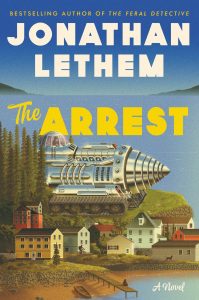
Jonathan Lethem, The Arrest
Ecco, November 10
From Gun, With Occasional Music to Motherless Brooklyn, The Fortress of Solitude to A Gambler’s Anatomy, I’ve never met a Lethem novel I didn’t like. They’re always full of heart and humor, wildly inventive and endearingly melancholy. The latest work from the genre-bending Brooklynite is billed as a “post-apocalyptic yarn about two siblings, the man that came between them, and a nuclear-powered super car.” Count me very much in. –Dan Sheehan, Book Marks Editor
Megan Rapinoe, One Life
Penguin Books, November 10
I don’t usually go in for celebrity memoirs, of any kind. But as lifelong soccer player and human in desperate need to remember that there are some good things and people in the world, I have to admit I’m looking forward to Megan Rapinoe’s, which promises to be not just the story of her life but a call to action from an influential and tireless activist. If more little girls grew up like her, we’d be better off indeed. –Emily Temple, Managing Editor

Margaret Atwood, Dearly: Poems
Ecco, November 10
Margaret Atwood began her writing life as a poet in 1961, hand-printing her debut collection Double Persephone on a flat-be d press, drawing the linoblock illustrations herself. Ever since she made the forms she’s—the romance, the tragedy, the myth, the essay—her own with a similar hands-on approach. The making is always mostly felt in her poems though, which expertly use sonic effects to disquiet the reader. These new poems, written over the past decade, sharpen that mode ever more, rewriting stories (the werewolf) and narratives (our earth will be here forever us) to show how dearly we need to wake up. –John Freeman, Executive Editor
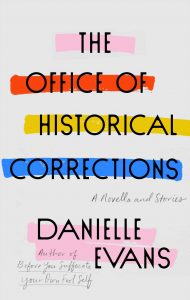
Danielle Evans, The Office of Historical Corrections: A Novella and Stories
Riverhead, November 10
Danielle Evans previously drew praise for her short story collection Before You Suffocate Your Own Fool Self; now, she’s back with more stories that explore issues of race and power in America through her characters’ lives. With her sharp writing and a nuanced portrayal of human relationships, she has created an engrossing collection. –Corinne Segal, Senior Editor
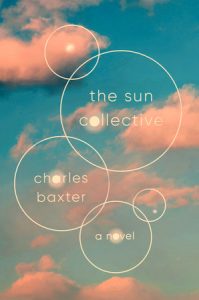
Charles Baxter, The Sun Collective
Pantheon, November 17
Charles Baxter’s Gryphon is one of my all-time favorite short story collections, and I included a reading from his novel The Feast of Love in my wedding ceremony, so I would describe my interest in his work as robust. In The Sun Collective, a family searching for their missing son is drawn to a local activist group with a charismatic leader. Baxter a master of quiet moments of unfathomably deep humanity, whether he’s describing falling in love or the loss of a child. I can’t wait to see what he does with this one. –Jessie Gaynor, Lit Hub Social Media Editor
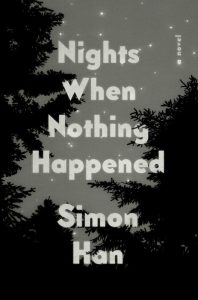
Simon Han, Nights When Nothing Happened
Riverhead, November 17
In this debut novel, an immigrant family living in suburban Dallas thinks they might have just achieved the American Dream—such as it is. But when they reunite with the child who stayed behind in China, she begins to sleepwalk, with unexpected consequences. “Han weaves the transience of suburbia between the highs and lows of a family saga,” Bryan Washington wrote, “illustrating what a parent owes a child, what a child owes their parents, and what simply cannot be repaid. His novel shocks, awes, and delights.” I’m very much looking forward to all that. –Emily Temple, Managing Editor
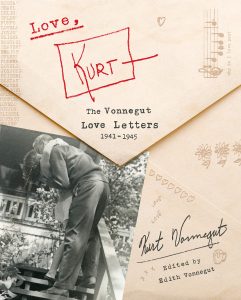
Edith Vonnegut, ed., Love, Kurt: The Vonnegut Love Letters, 1941-1945
Random House, November 17
I came to the novels of Kurt Vonnegut in my late twenties, much later than most of my peers (in this business, anyway) and was deeply struck by their tenderness. Even as Vonnegut grapples with war, hypocrisy, greed, and all the worst things we do to each other, he somehow hangs on to a fine thread of hopefulness, locates that little private joke we tell ourselves as the lights go out and reminds us it’s ok to smile. Between 1941 and 45, the very young Vonnegut wrote over 200 letters to his soon-to-be wife Edith: notes, sketches, comics, jokes, sweet-nothings… the inner voice of a young man in love spilled onto the page, finding its way toward the writer he’d one day become. –Jonny Diamond, Lit Hub Editor-in-Chief
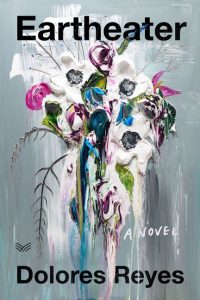
Dolores Reyes, tr. Julia Sanches, Eartheater
HarperVia, November 17
In which a young woman feels the urge to eat the earth, and when she does, she finds she has visions of the dead—visions that can reveal the truth of what happened to them. I love a good high-concept fabulist novel, especially when it’s feminist, so I’m all over this one. –Emily Temple, Managing Editor
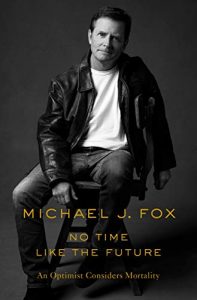
Michael J. Fox, No Time Like the Future
Flatiron, November 17
If you can find no joy in the Back to the Future trilogy (which, lest we forget, created, in Biff Tannen, a grotesque Trumpian villain long before it was cool) then I weep for you. Similarly, if you don’t find Fox’s decades-long Parkinson’s advocacy inspiring, then you may well be a heartless husk of a human being who does not deserve to read these “personal stories and observations about illness and health, aging, the strength of family and friends, and how our perceptions about time affect the way we approach mortality.” The man who played Teen Wolf is a national treasure and this right here is his book of secrets. Oh, and he was also great in Spin City and that one Scrubs episode. –Dan Sheehan, Book Marks Editor
Victoria Gosling, Before the Ruins
Henry Holt, November 17
Sarah Waters calls Gosling’s debut literary thriller “engrossing, beguiling, and with an undertow of menace,” which makes me want to read it no matter what it’s about—but the fact that it concerns an abandoned manor house and a treasure hunt does not hurt at all. –Emily Temple, Managing Editor

Ernest Cline, Ready Player Two
Ballantine, November 24
As recently reported in this space, Cline’s follow-up to his 2011 #1 bestseller Ready Player One is finally hitting shelves this November. It’s back to the Oasis for us. –Emily Temple, Managing Editor
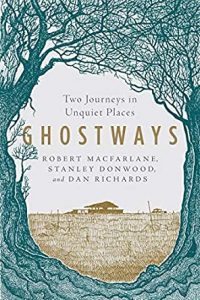
Robert Macfarlane and Dan Richards, Ghostways: Two Journeys in Unquiet Places
Norton, November 24
Robert Macfarlane’s Underland was an extraordinary accomplishment of nature writing and one of my favorite books; now, he, alongside Dan Richards and Stanely Donwood, turns an eye to South Dorset in southwestern England and Orford Ness, a former atomic testing site in southeast England, exploring the many myths of the landscape. –Corinne Segal, Senior Editor
DECEMBER
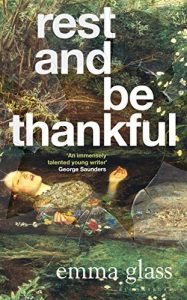
Emma Glass, Rest and Be Thankful
Bloomsbury, December 1
This new, short novel by the author of Peach, who George Saunders called “an immensely talented young writer” whose “fearlessness renews one’s faith in the power of literature,” also comes with a blurb from Florence Welch, which certainly piques my interest. In Glass’s trademark, lyrical style, it follows a woman on the edge—a night-shift nurse in a pediatric unit who may or may not be seeing things. –Emily Temple, Managing Editor
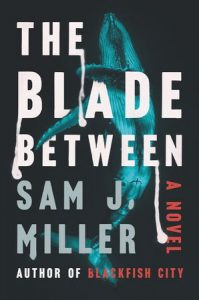
Sam J. Miller, The Blade Between
Ecco, December 1
The latest novel from the author of Blackfish City is a ghost story set in every New Yorker’s newest obsession: the Hudson Valley—which turns out to be overrun than more than just gentrifiers. Can’t say I’m not intrigued. –Emily Temple, Managing Editor
Chelsea G. Summers, A Certain Hunger
Unnamed Press, December 1
Megan Abbott calls this sinister debut “American Psycho as rewritten by Angela Carter,” which . . . might just be one of the best comps I’ve ever read. Also: food and murder and a female psychopath! These are all things I like and need to have on my bookshelf. –Emily Temple, Managing Editor

Ryan Gattis, The System
MCD, December 8
In Ryan Gattis’ next novel, two men go to prison for a murder, but only one of them is guilty, and both were railroaded by a cop with a grudge. A close friend sets out to find out why, and how, his friends got framed for the job. Gattis is known for his sweeping multi-character crime epics, and The System looks to be his best yet. –Molly Odintz, CrimeReads Senior Editor
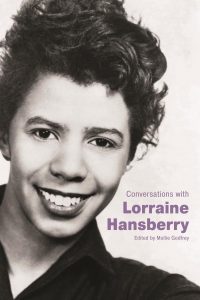
Lorraine Hansberry, ed. Mollie Godfrey, Conversations with Lorraine Hansberry
University of Mississippi Press, December 15
With Looking for Lorraine, Imani Perry renewed interest in the life and work of a well-loved playwright. We have reason to thank Mollie Godfrey, then, for wrangling virtually all of Lorraine Hansberry’s published interviews, including ones she gave on radio and TV. What did she think about protest art? Did she prefer realism or naturalism, the tenets of Black nationalism or those of integration? You’ll learn that here. –Aaron Robertson, Assistant Editor

John Took, Why Dante Matters: An Intelligent Person’s Guide
Bloomsbury Continuum, December 15
2021 will be the 700th year since the death of Dante Alighieri, a poet everyone has heard of but few people understand deeply. This book will tell you why you should fix that, and also . . . fix it quite a bit in the process. –Emily Temple, Managing Editor
Emily Temple
Emily Temple is the managing editor at Lit Hub. Her first novel, The Lightness, was published by William Morrow/HarperCollins in June 2020. You can buy it here.









